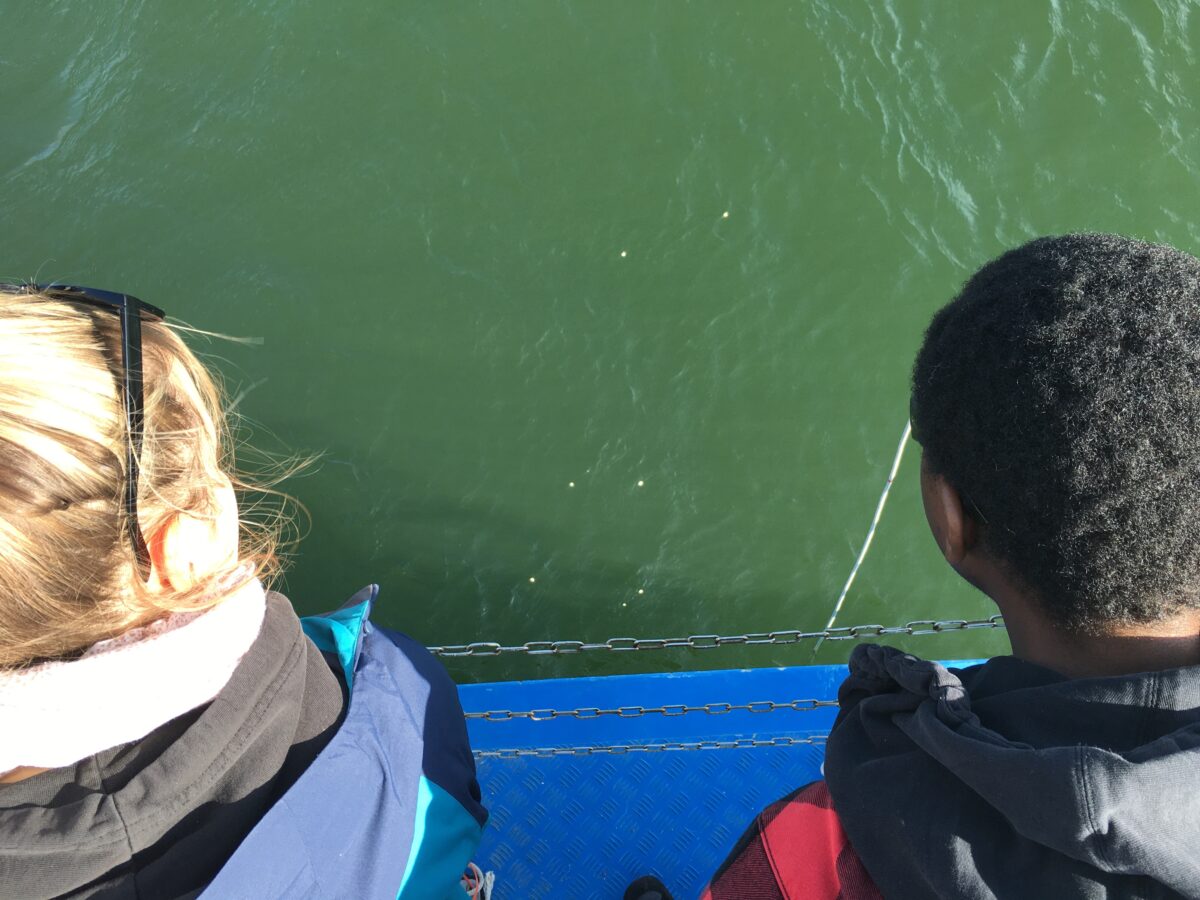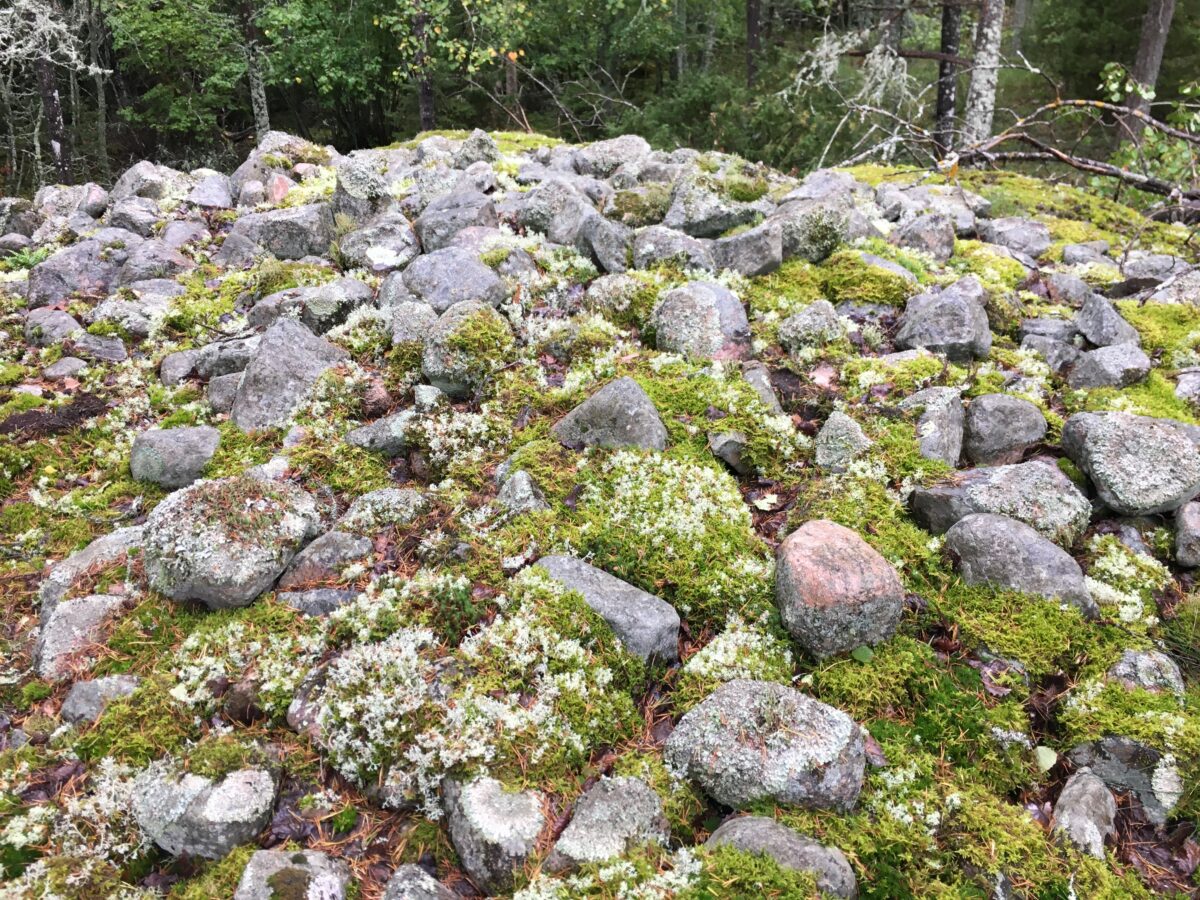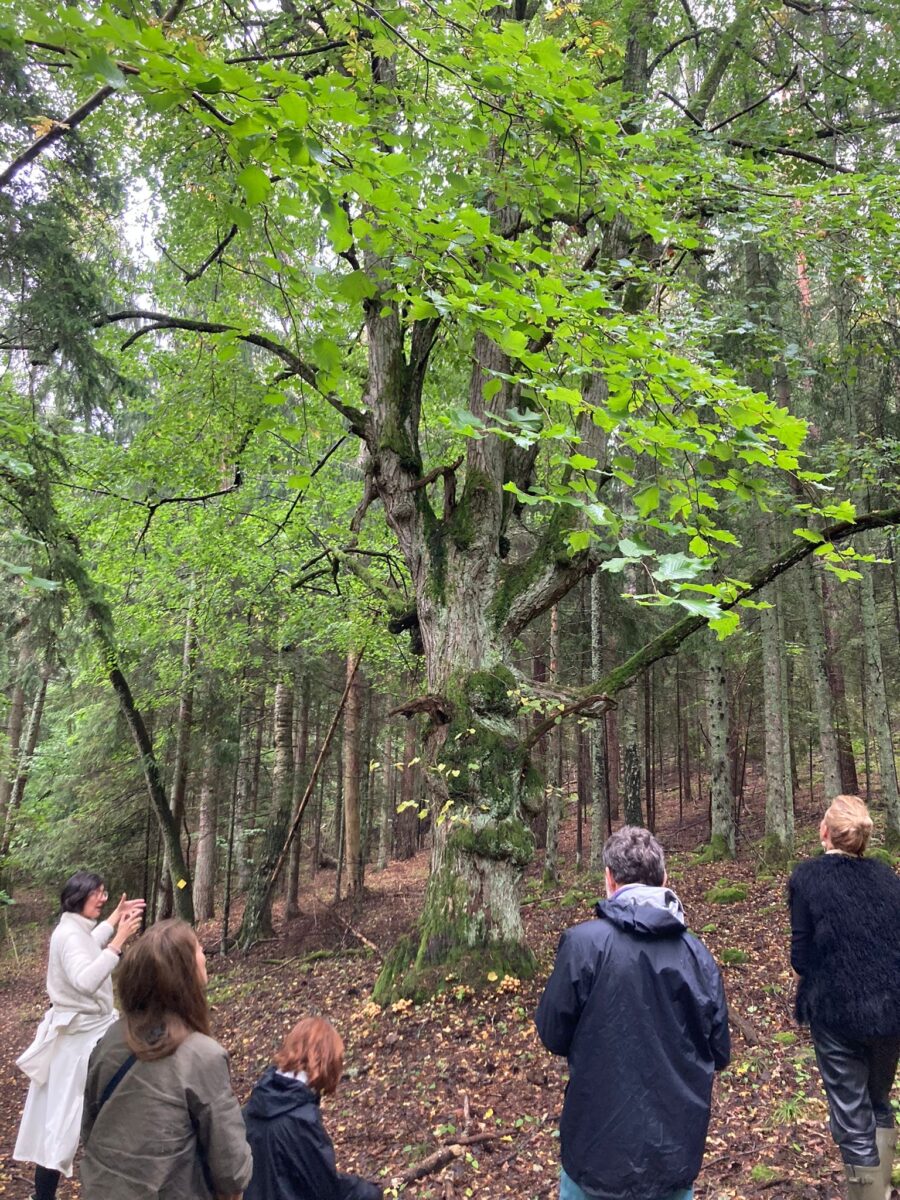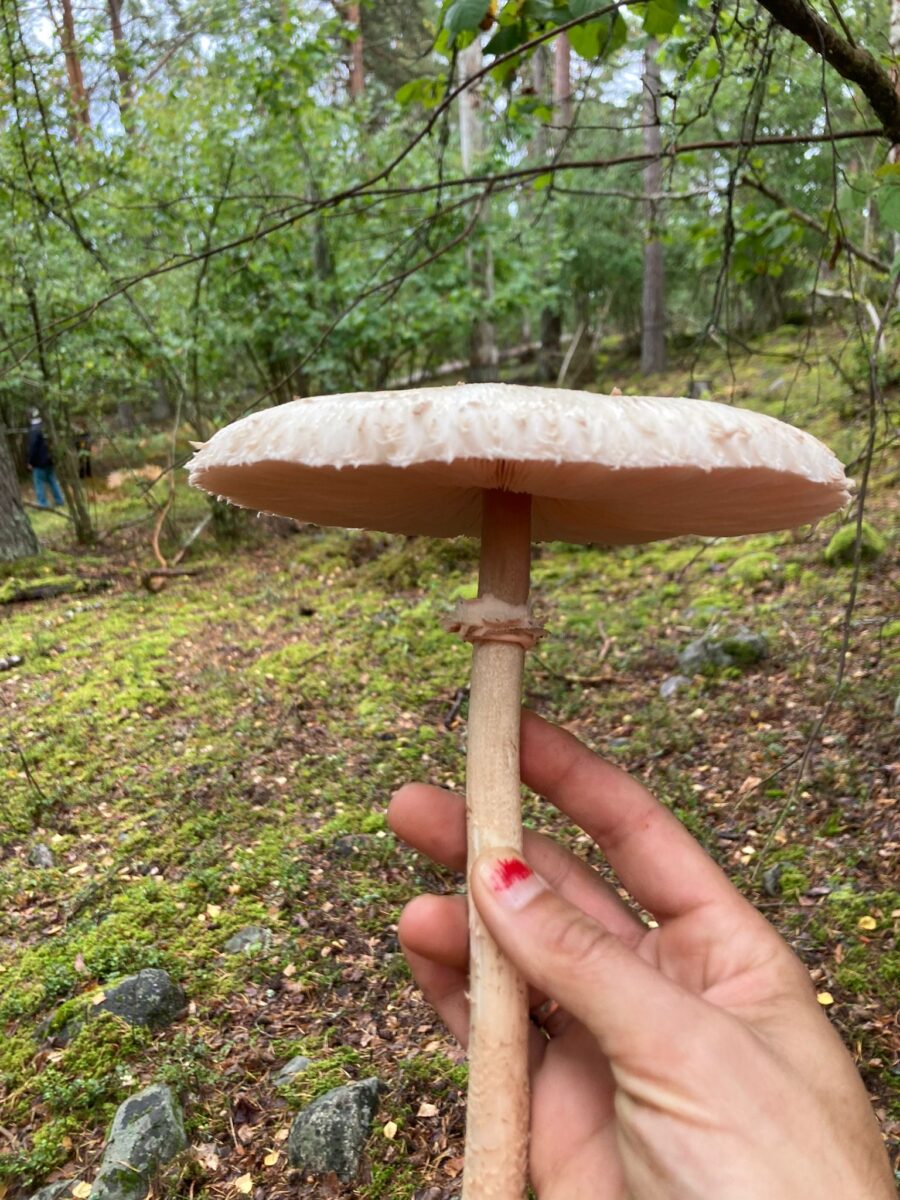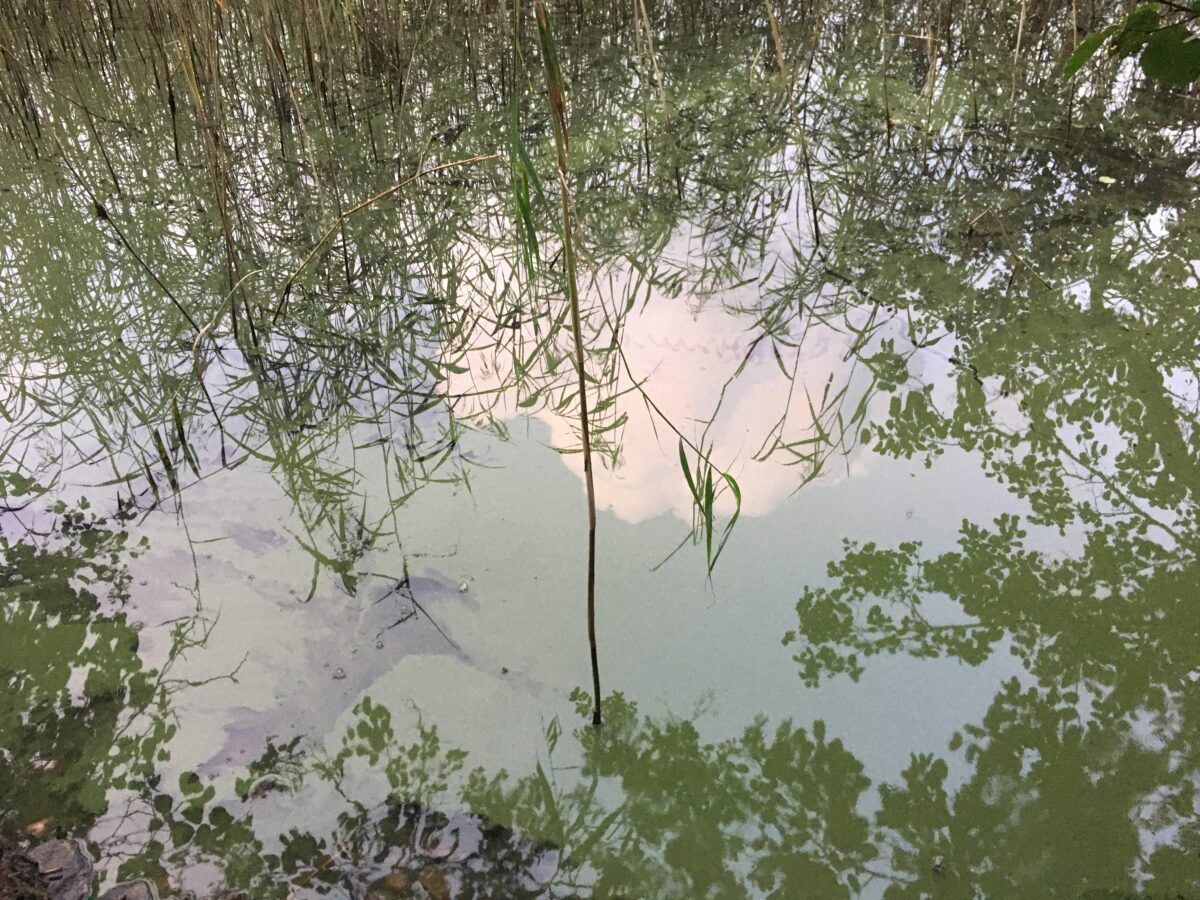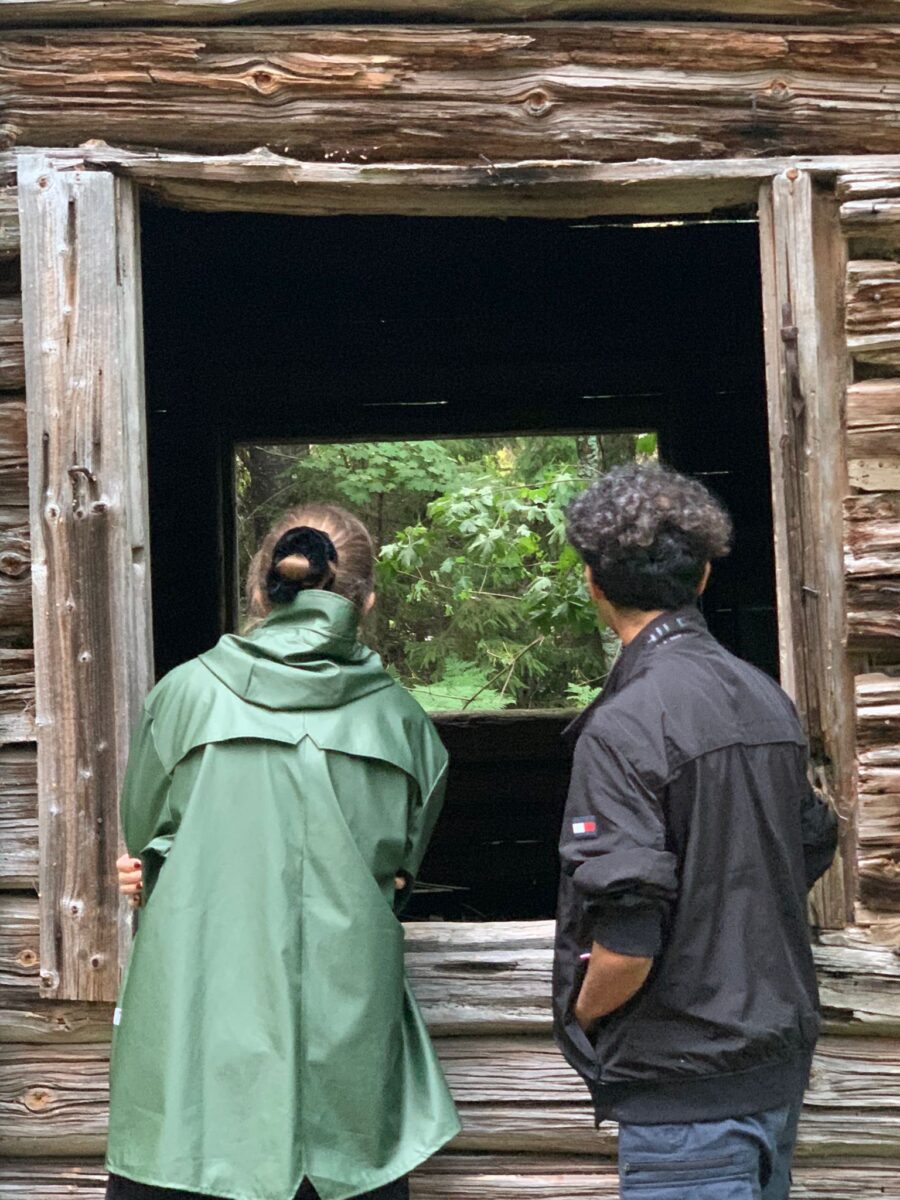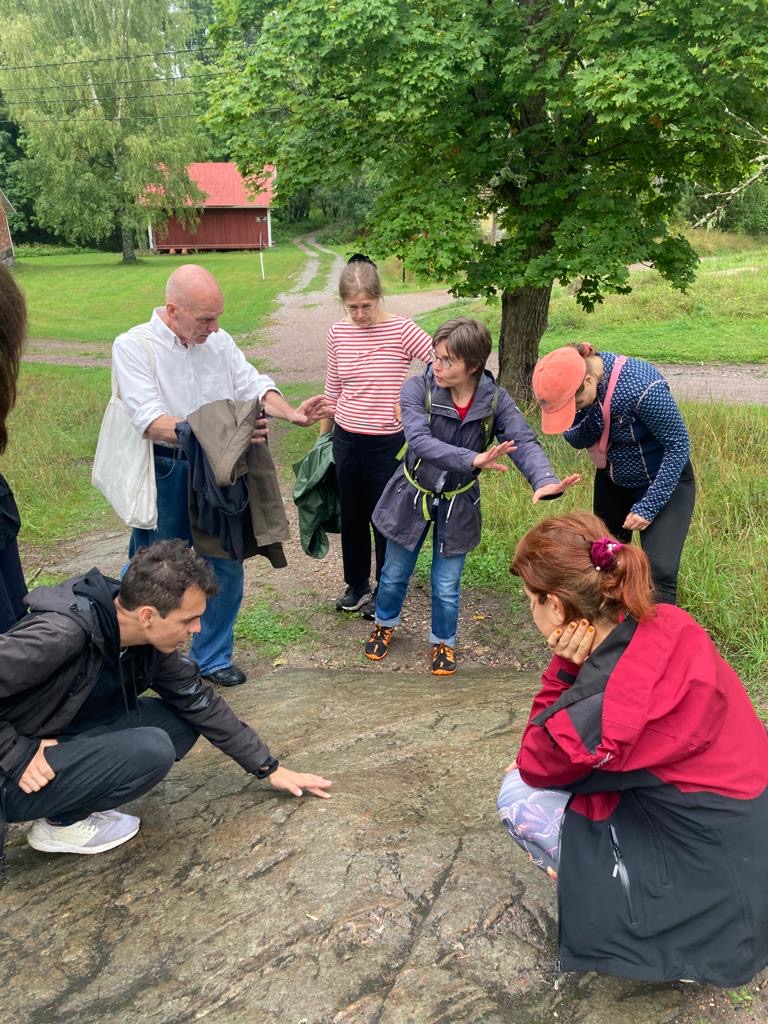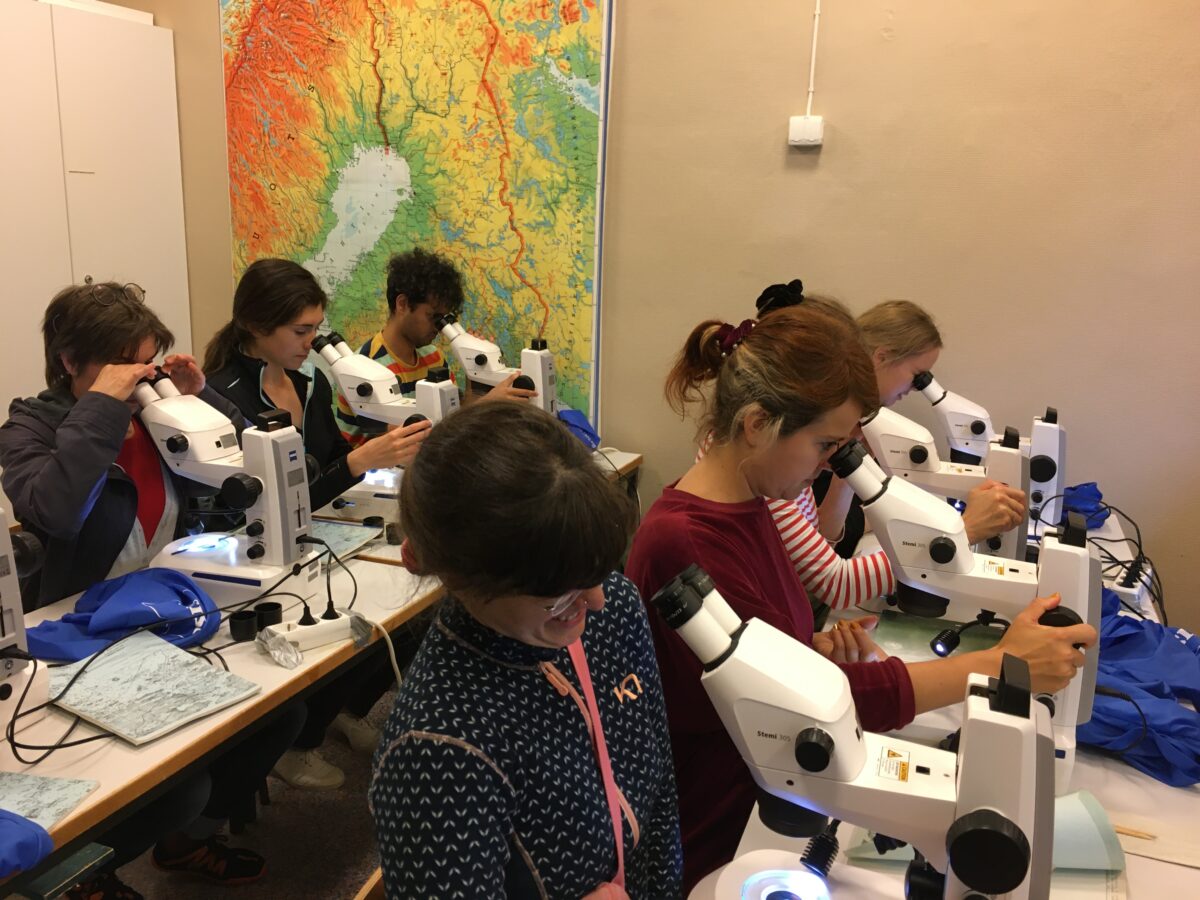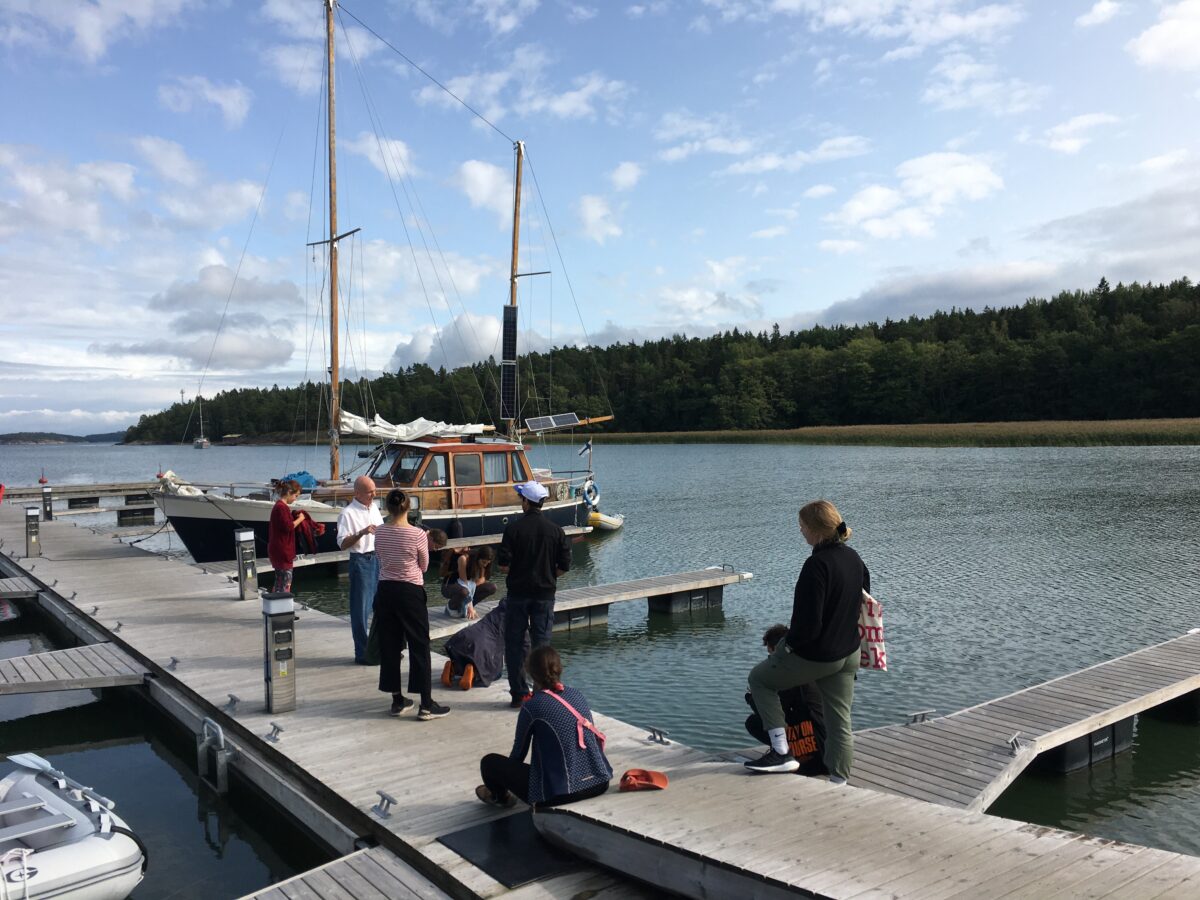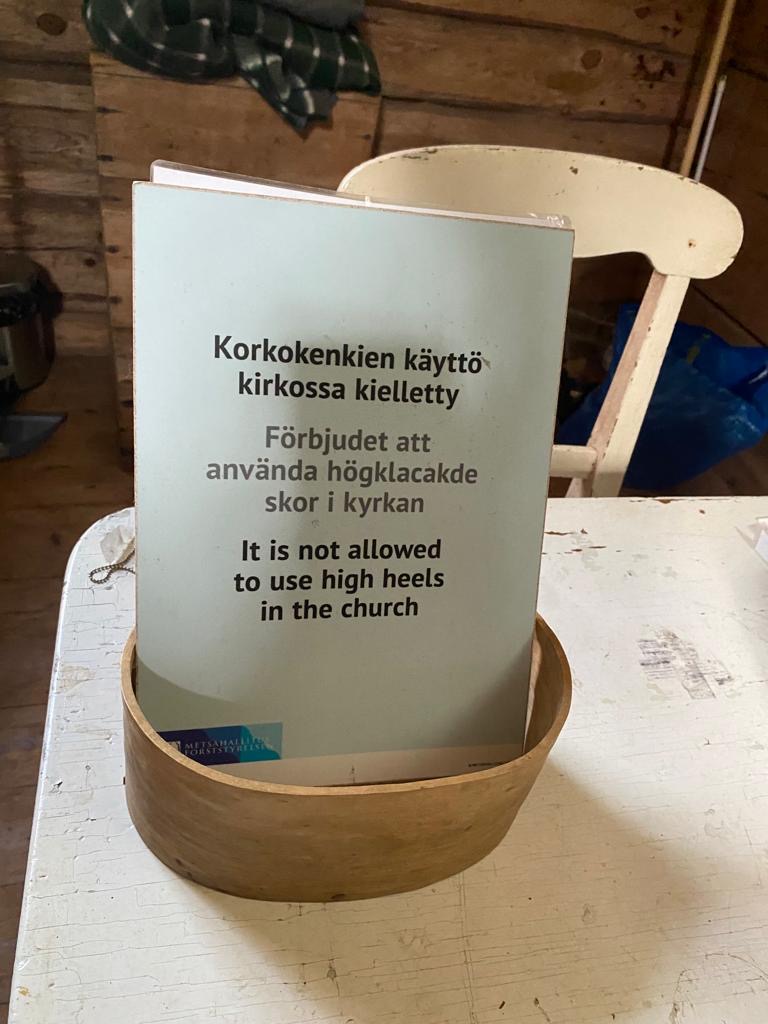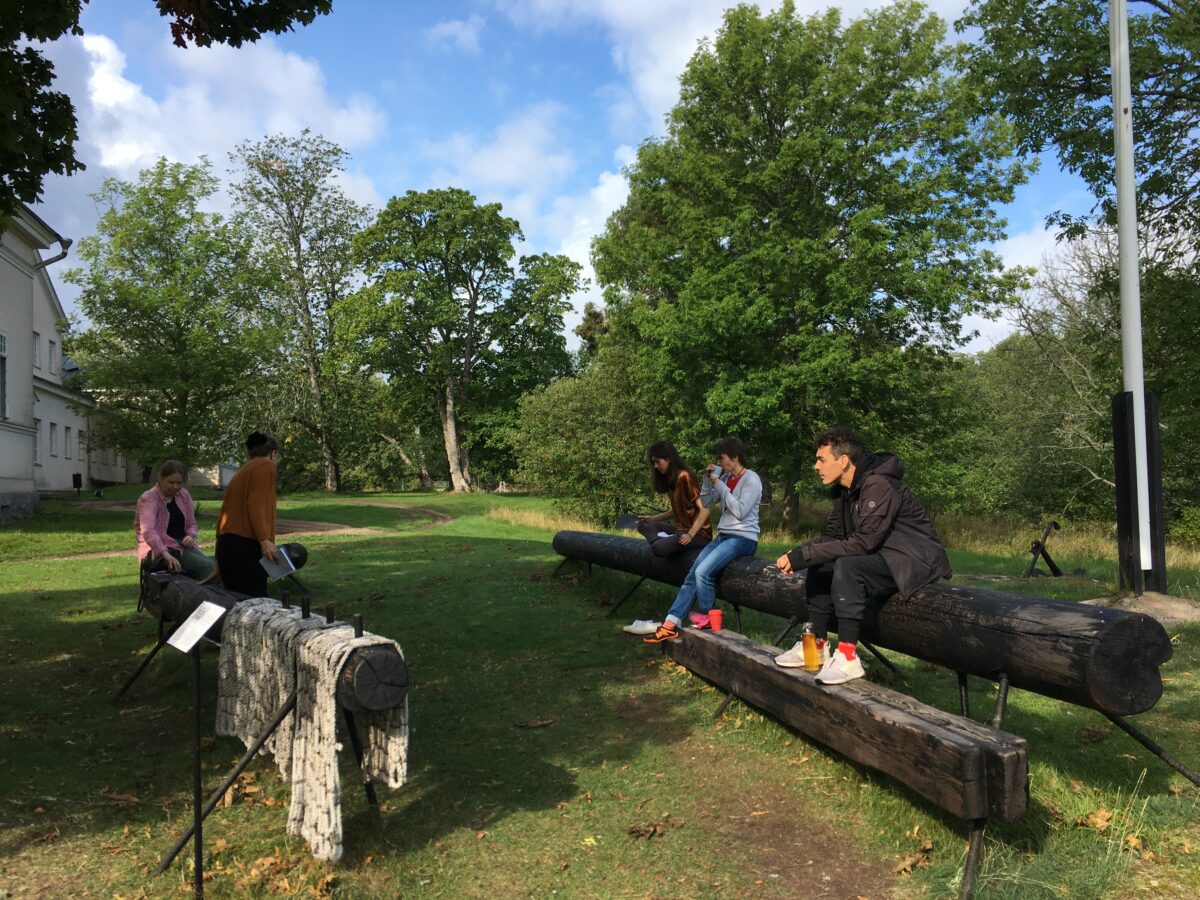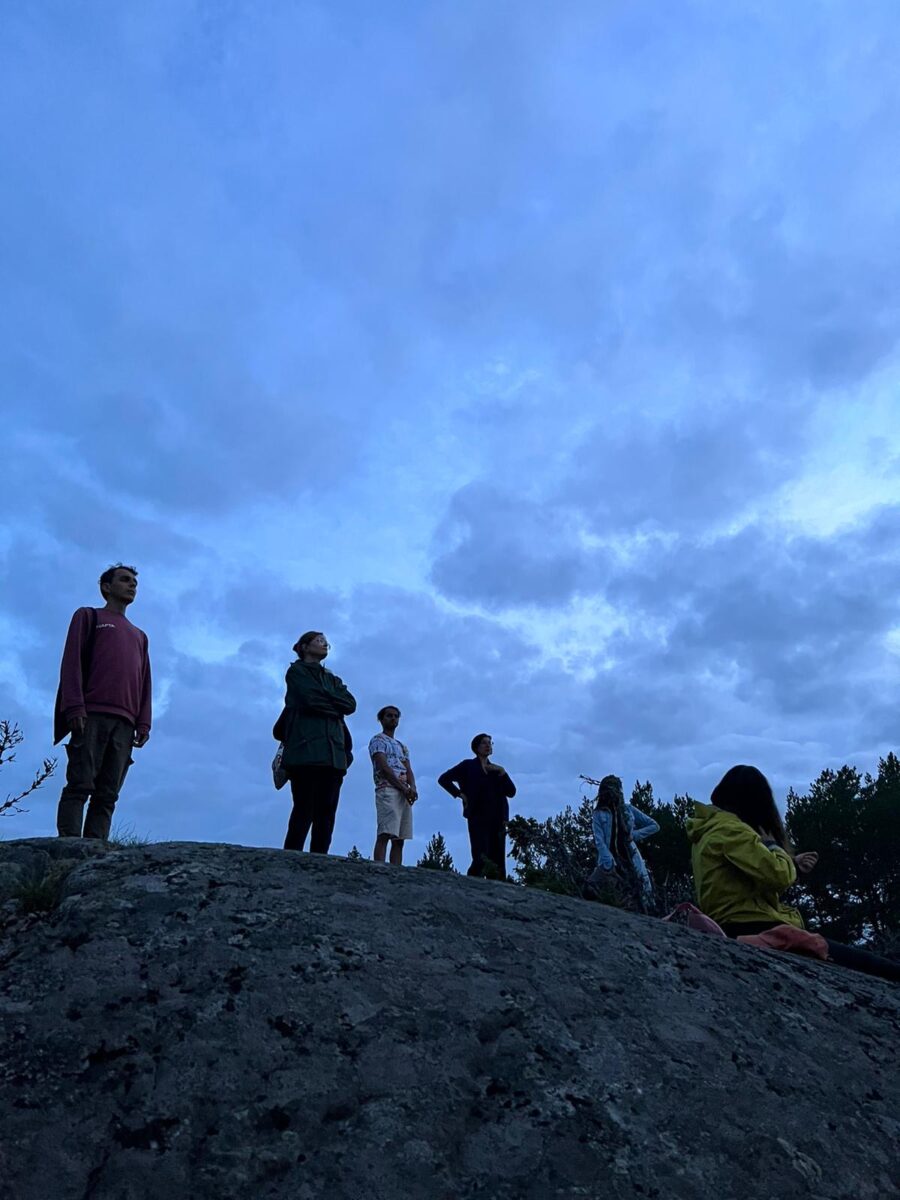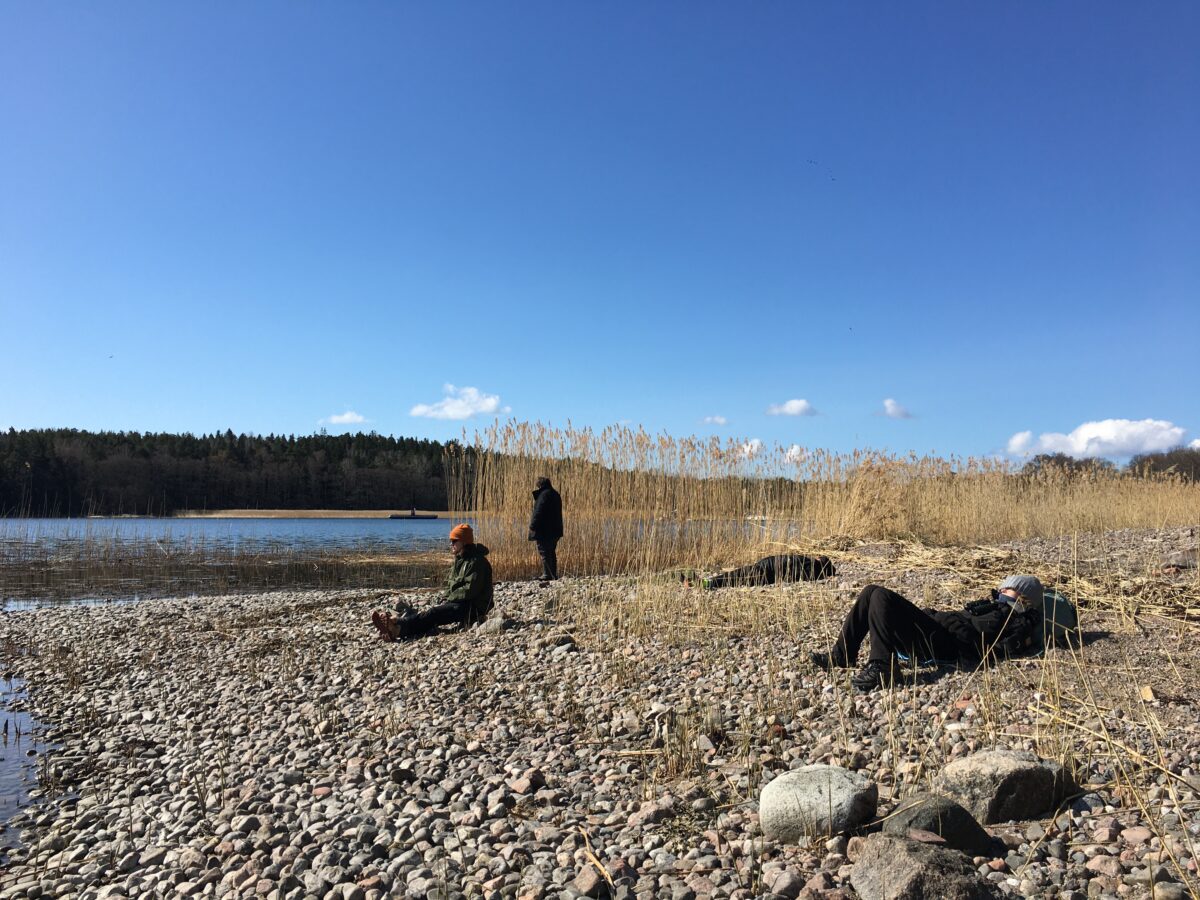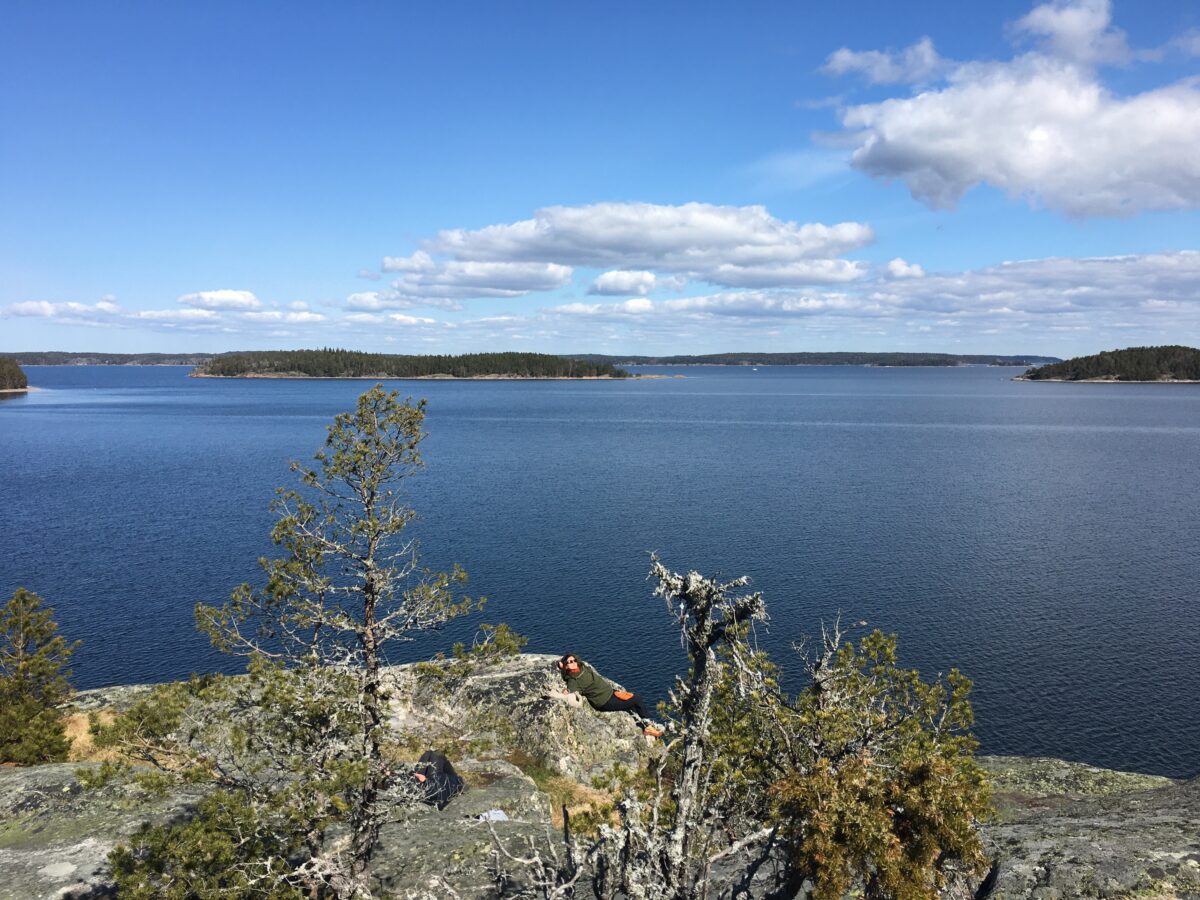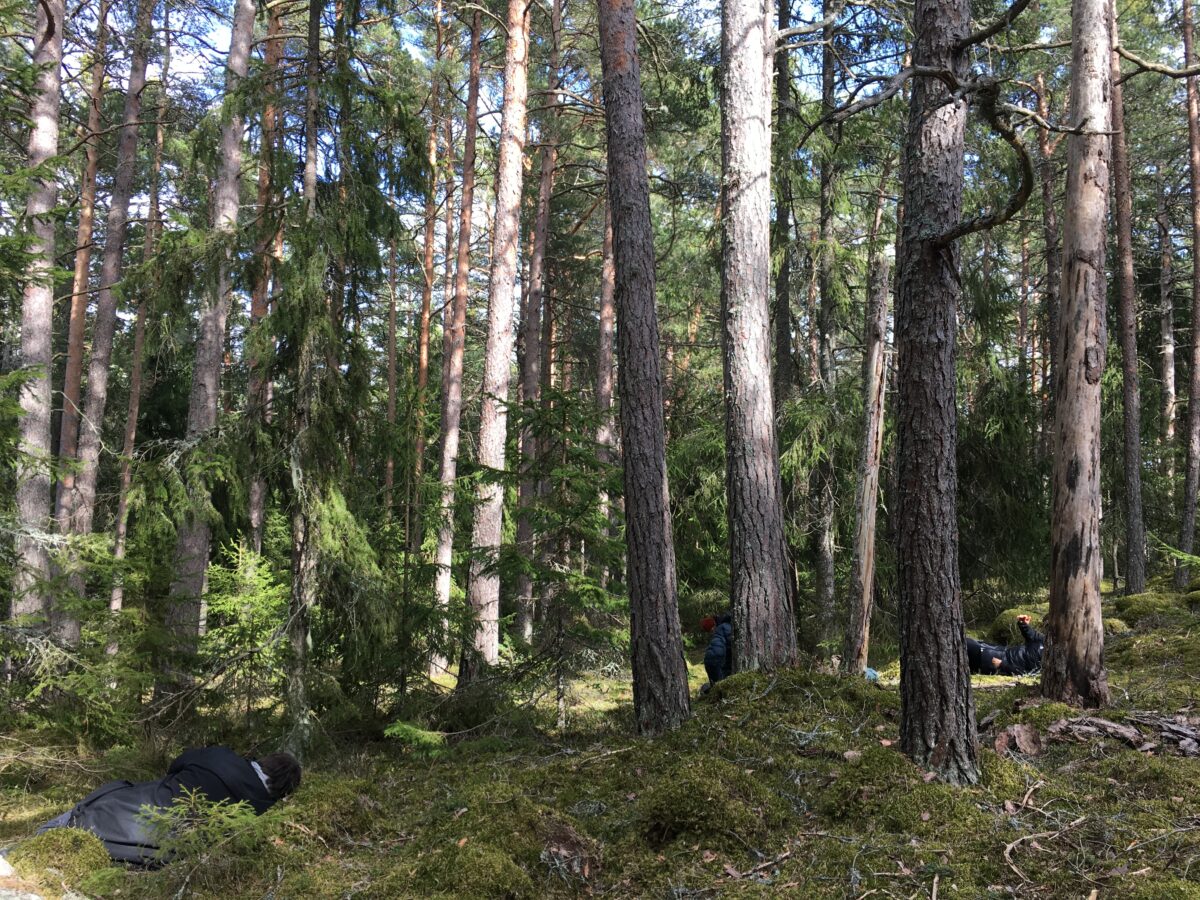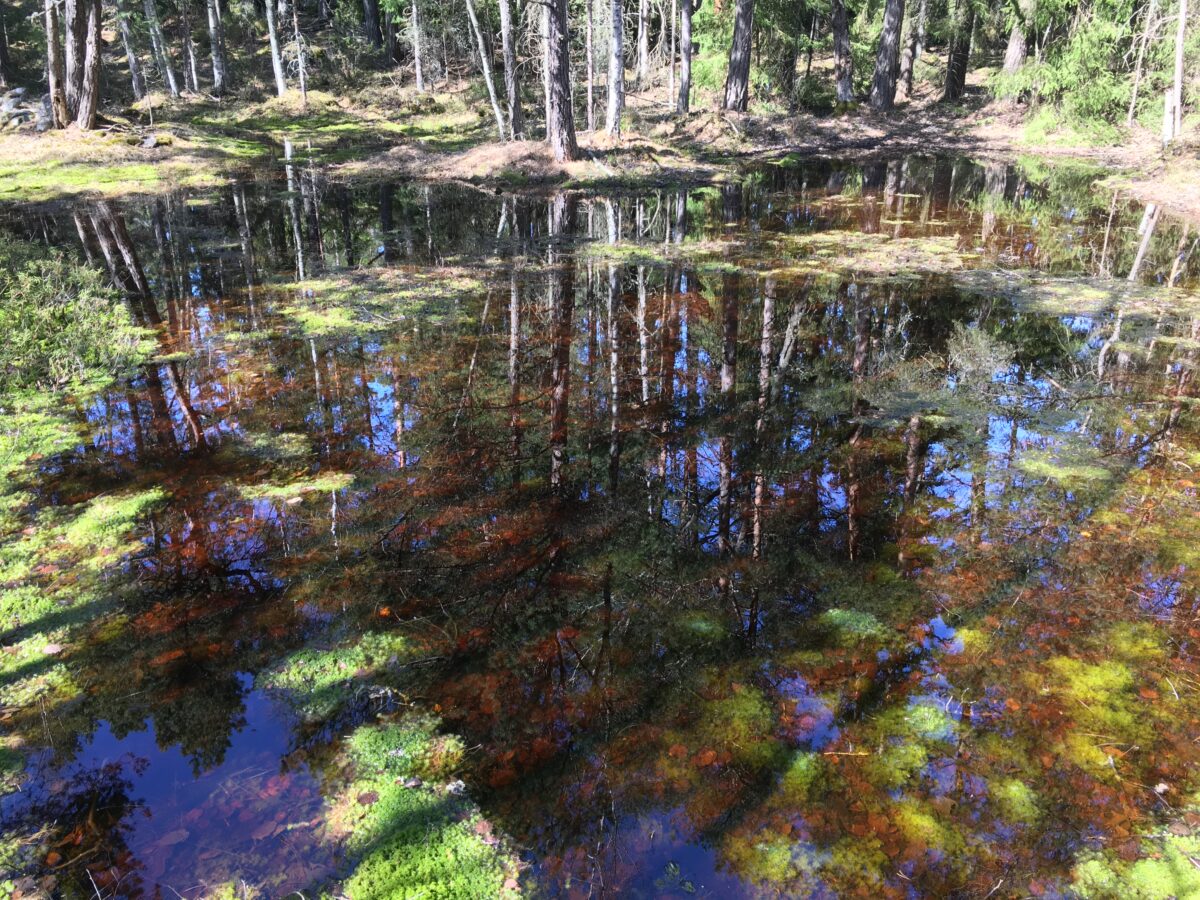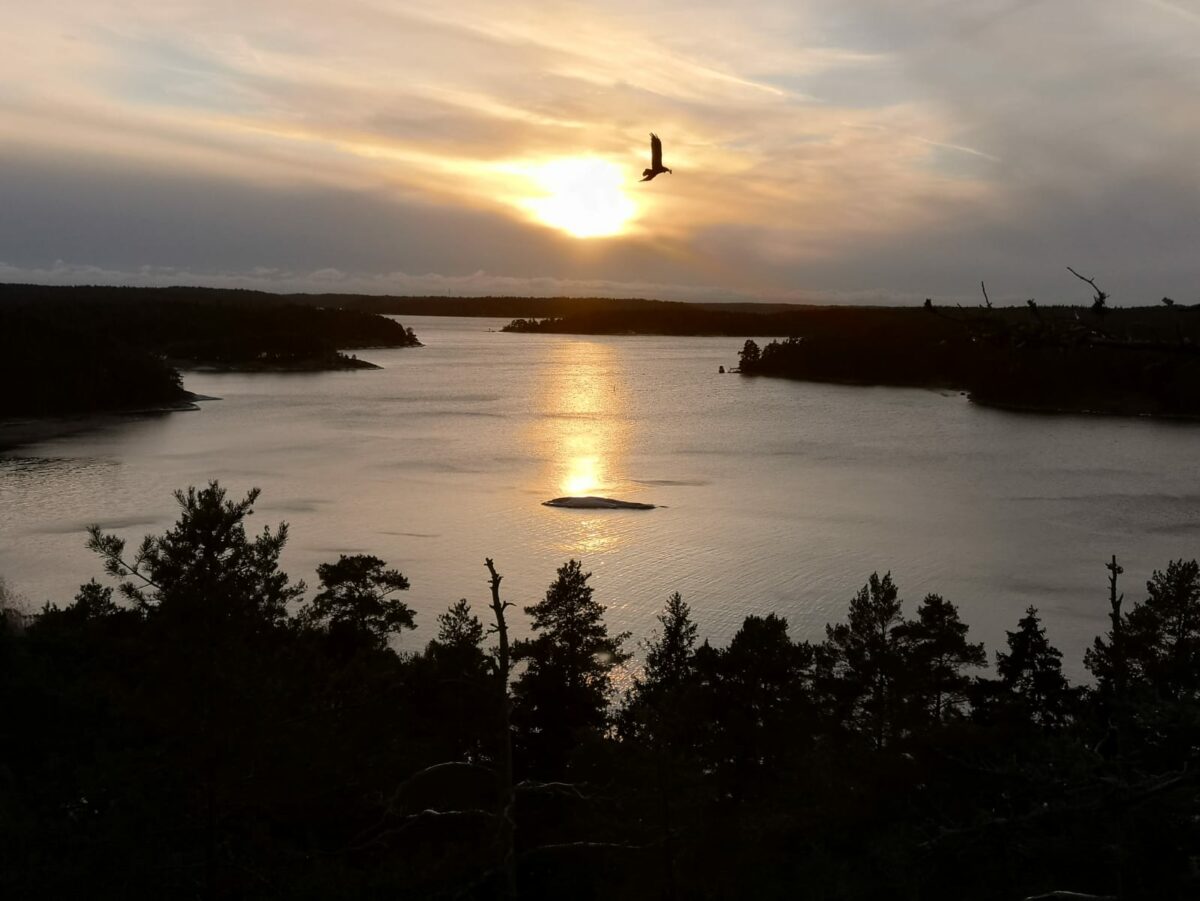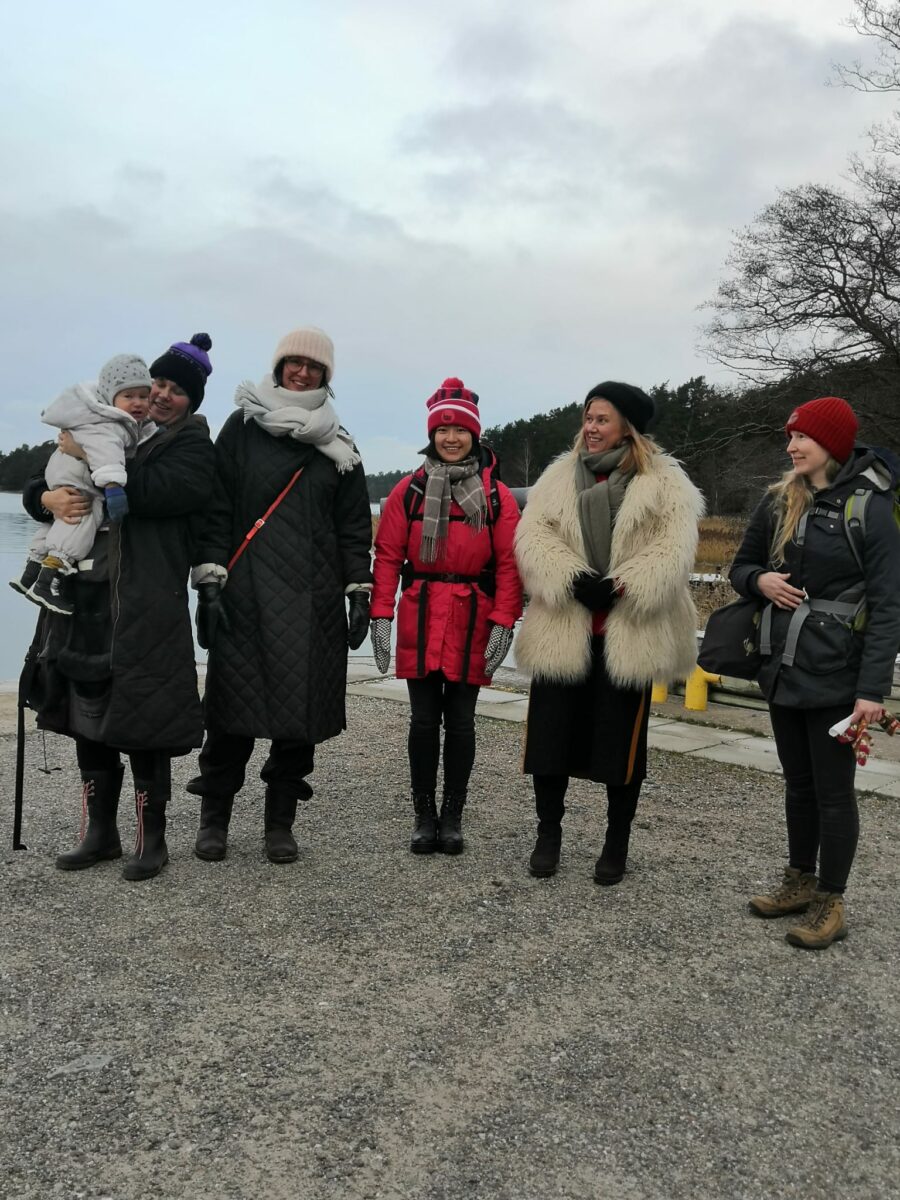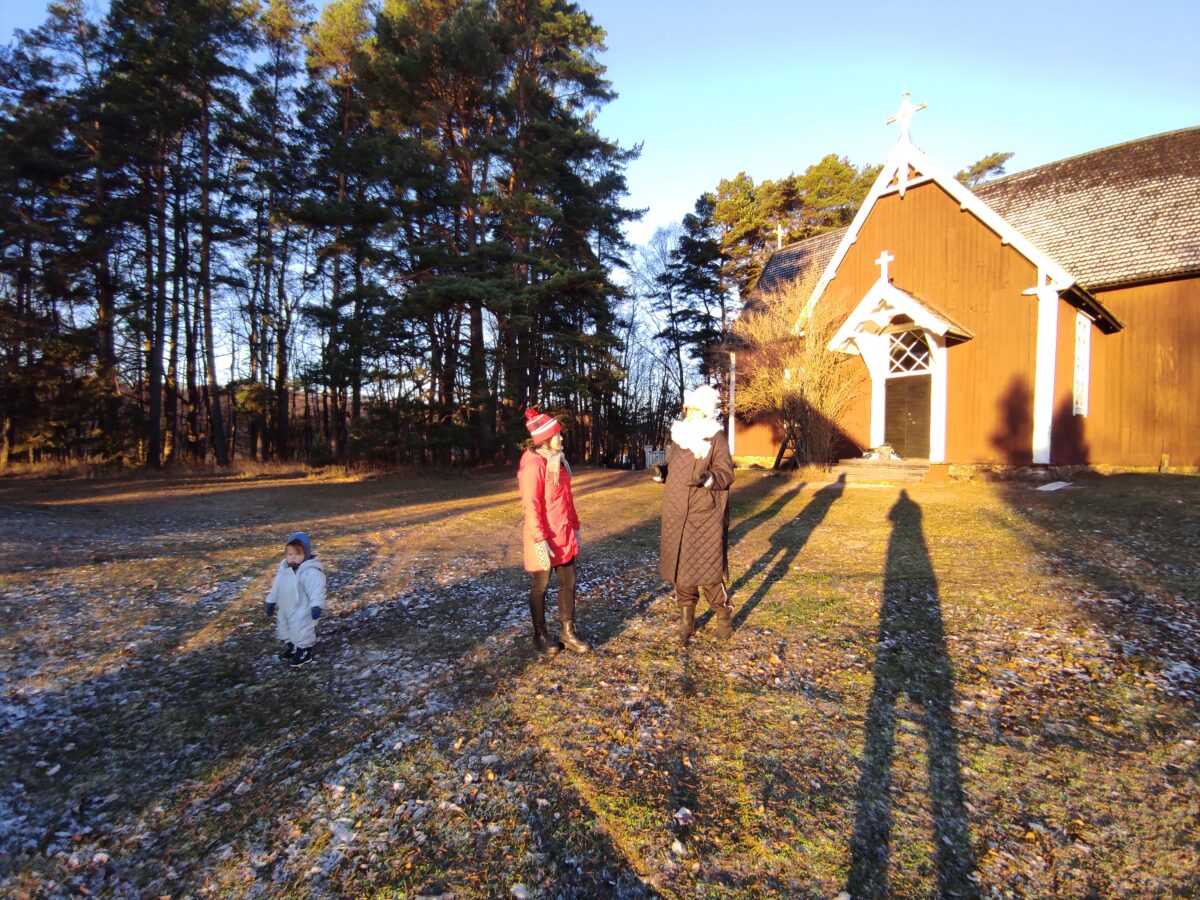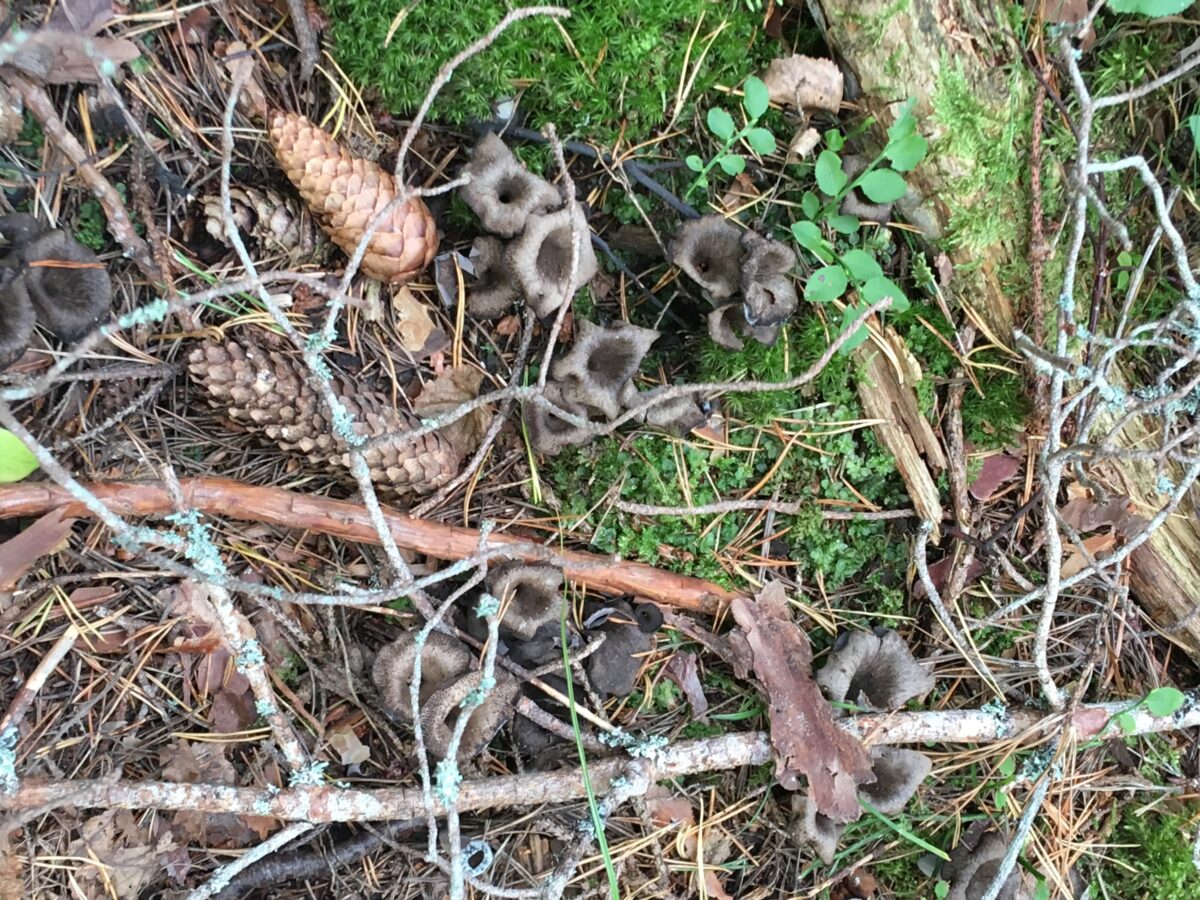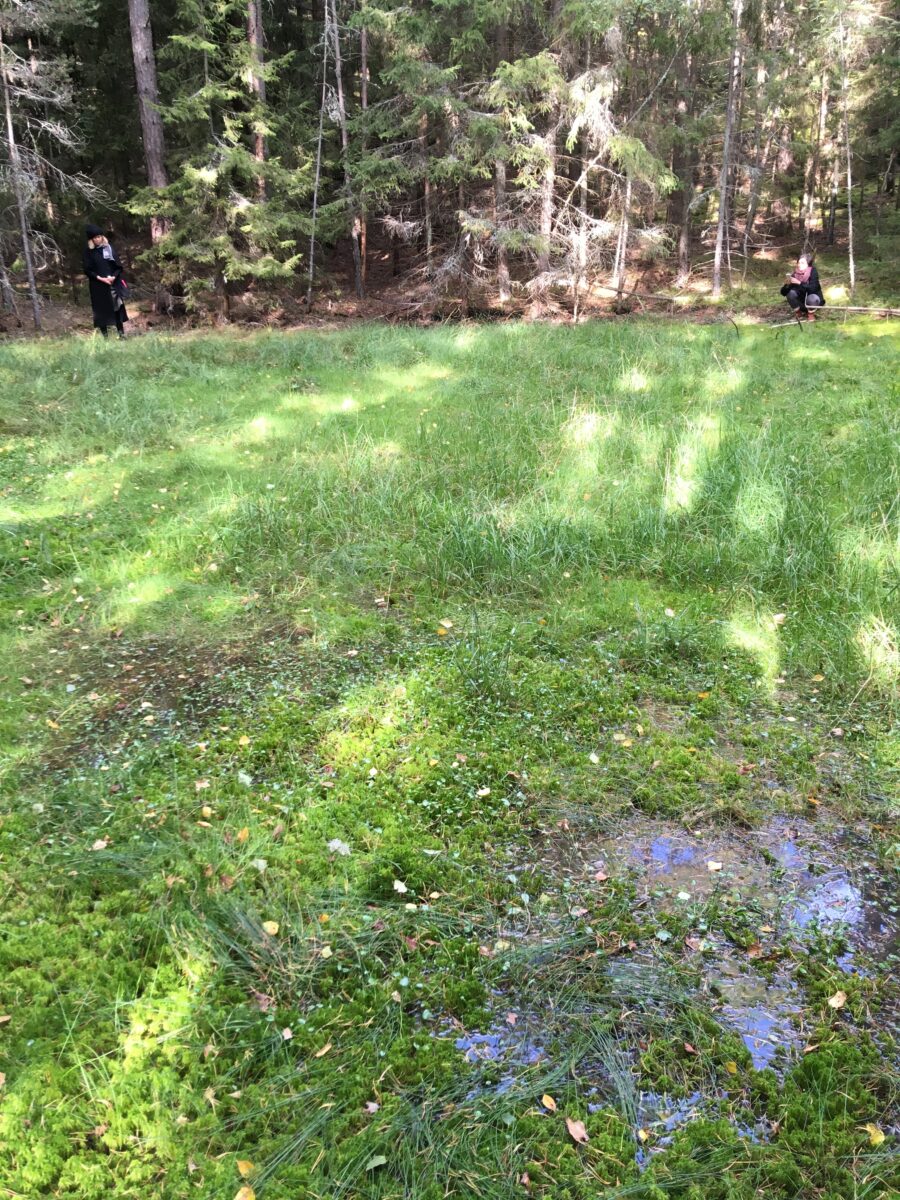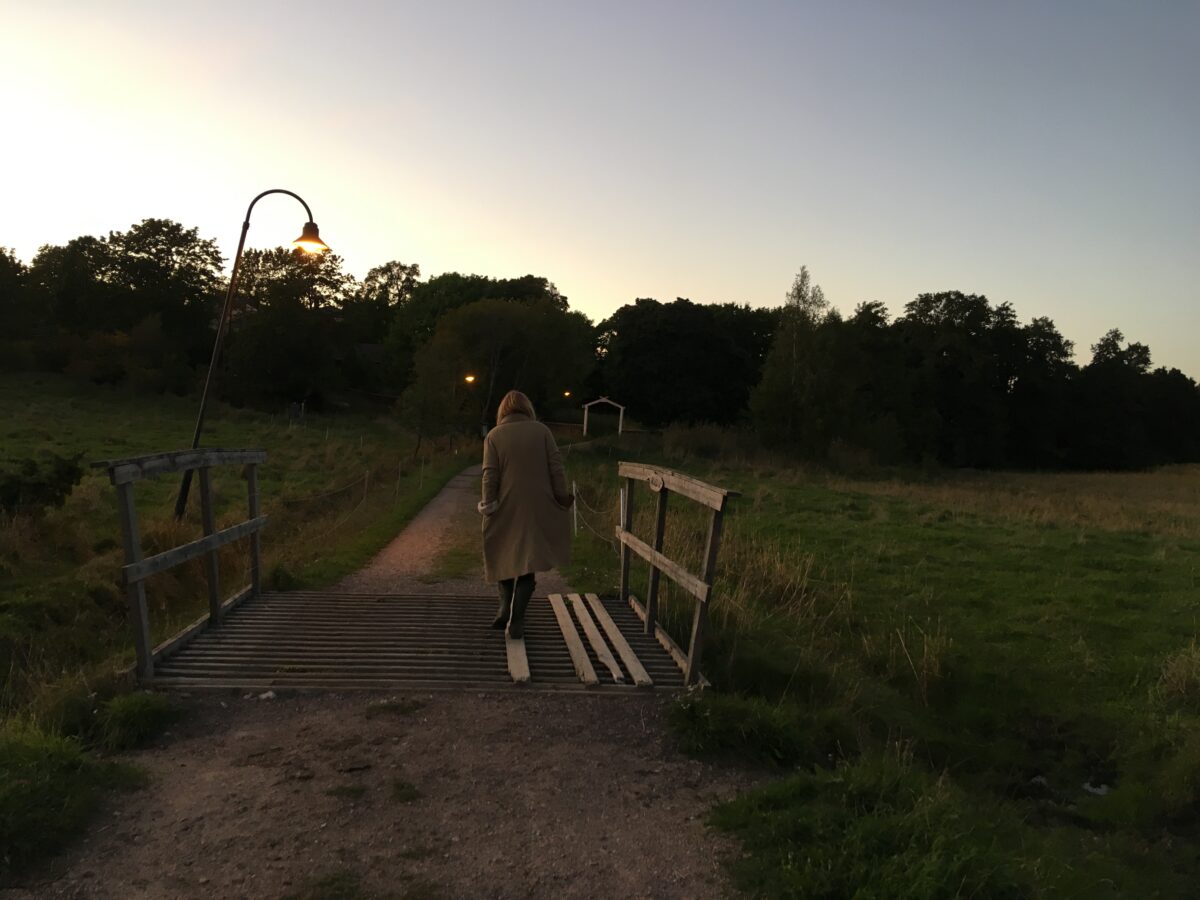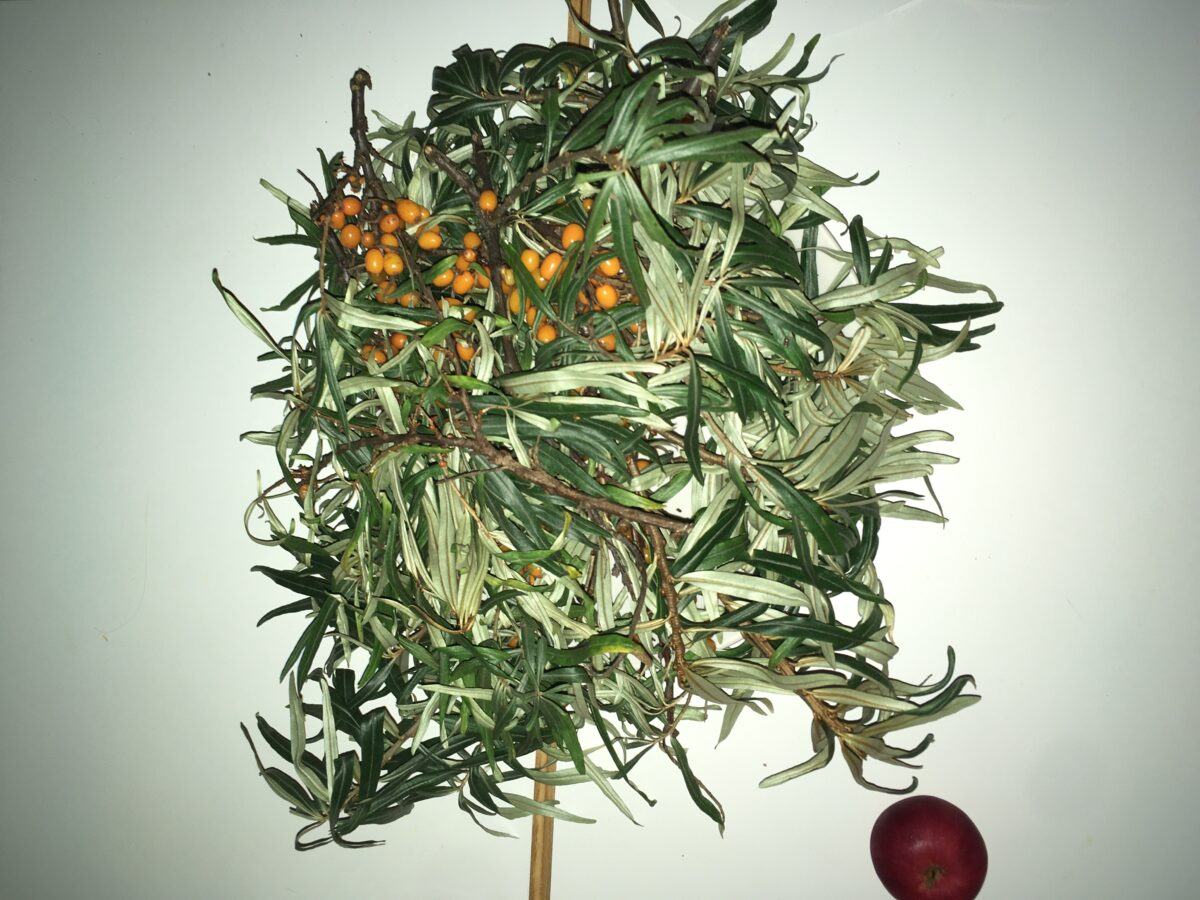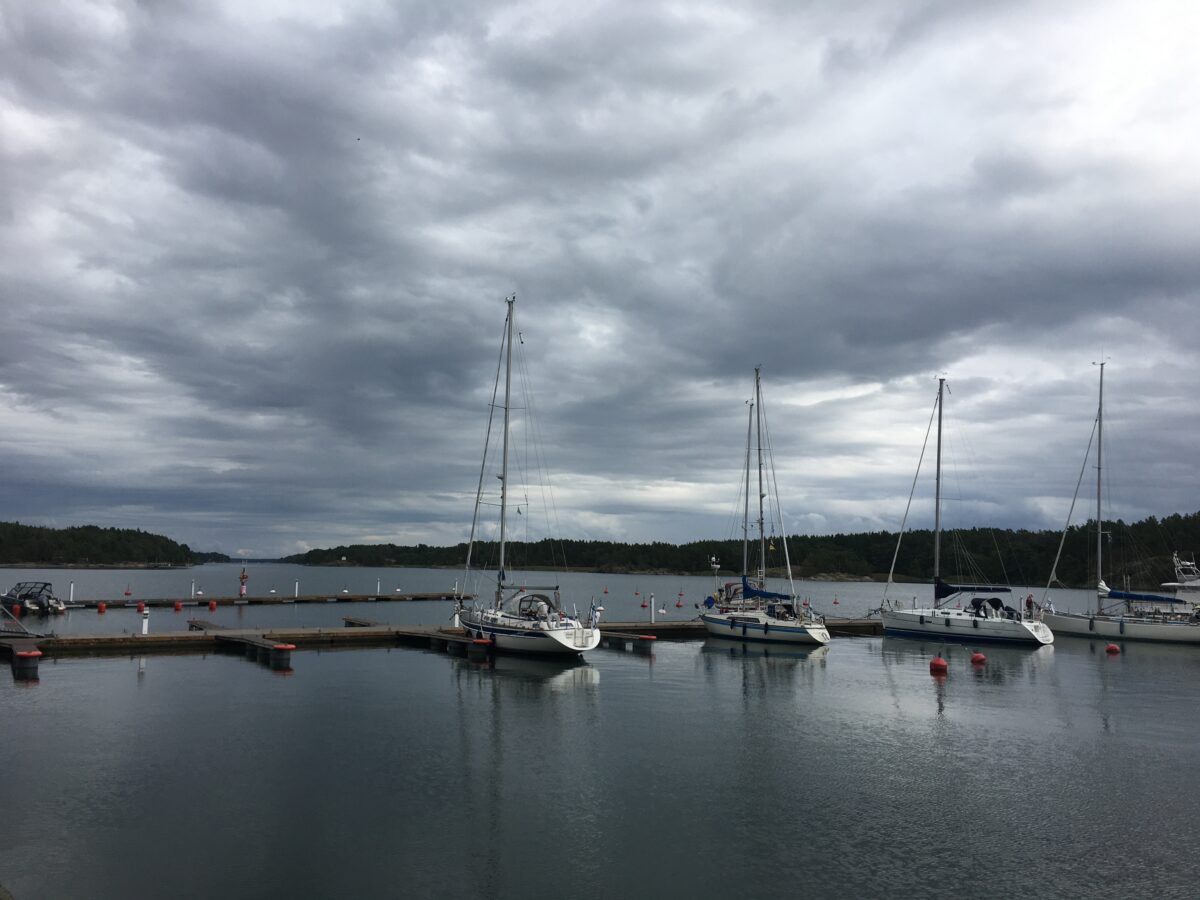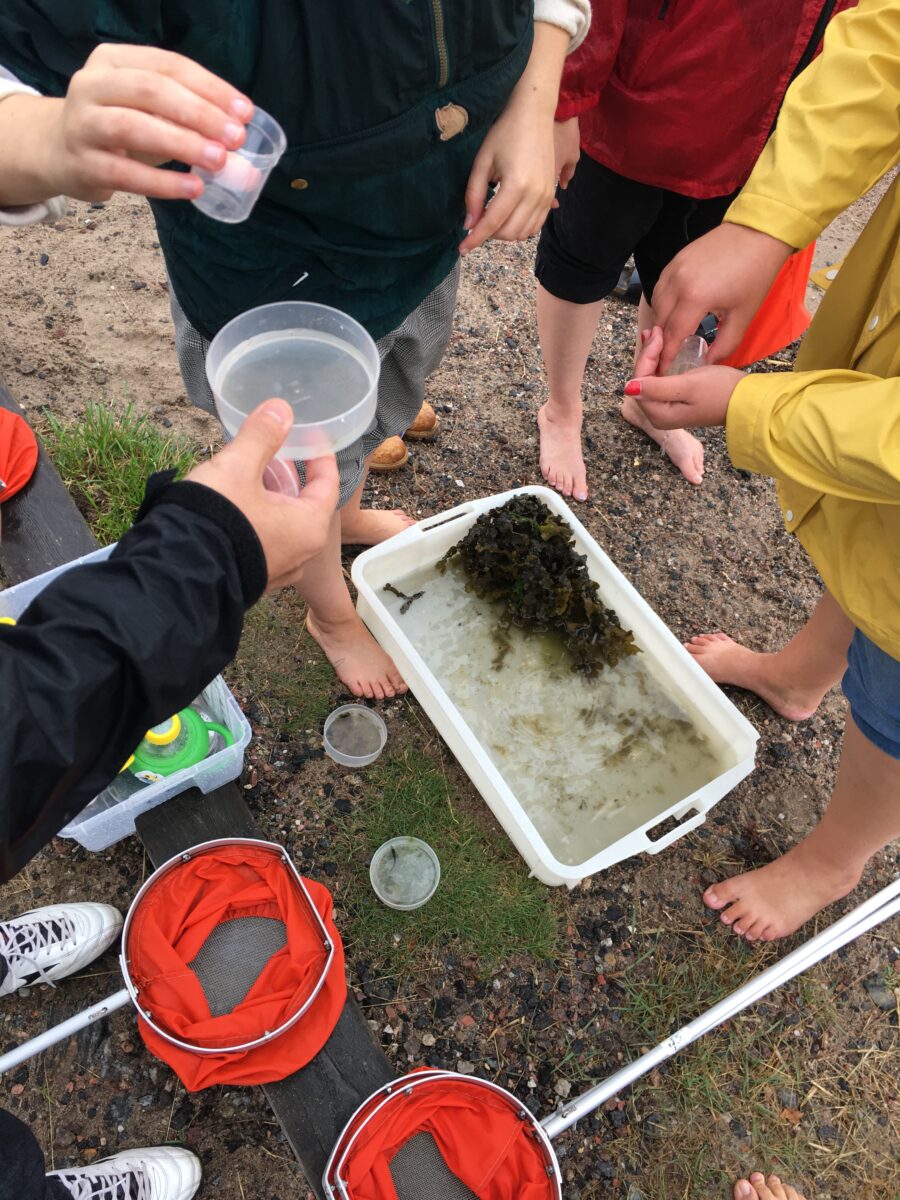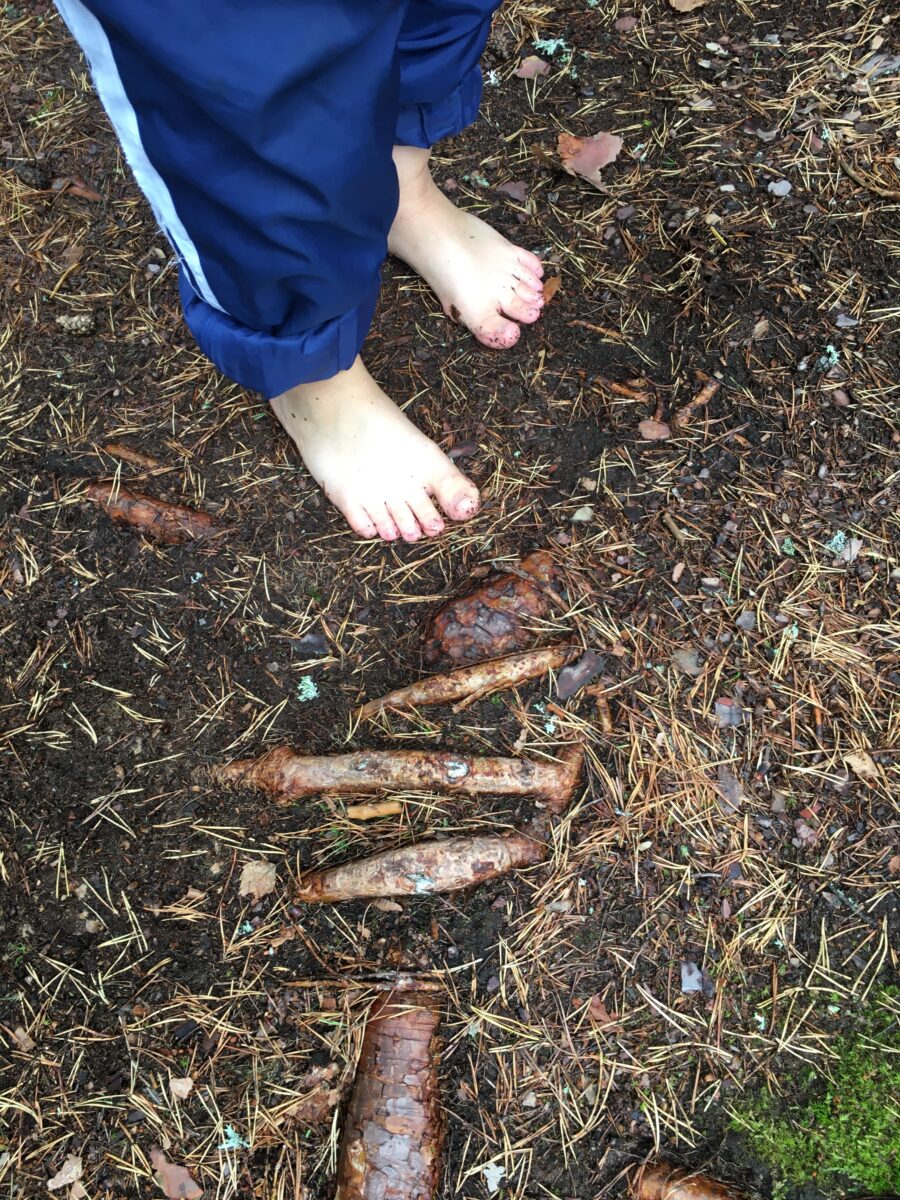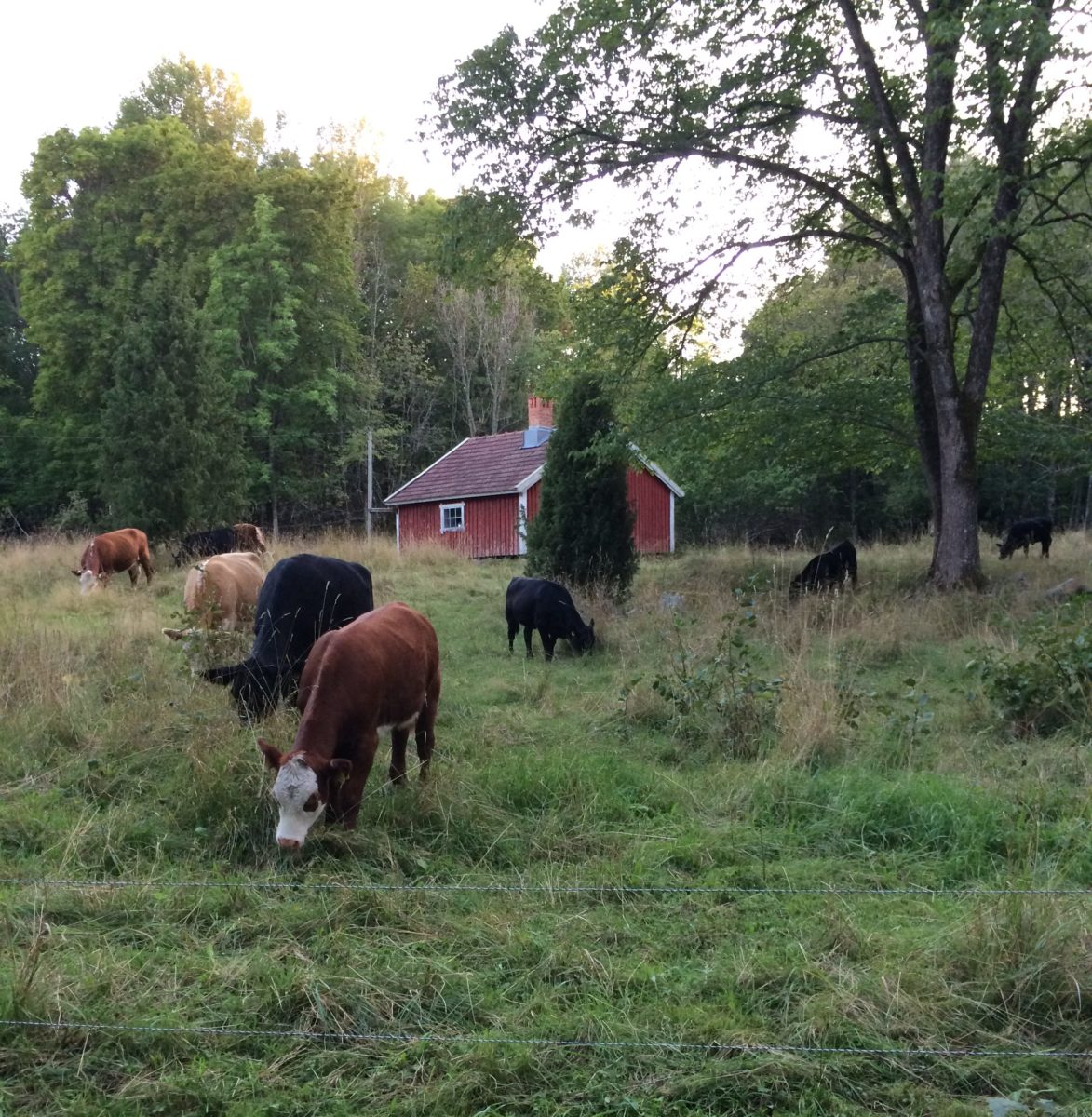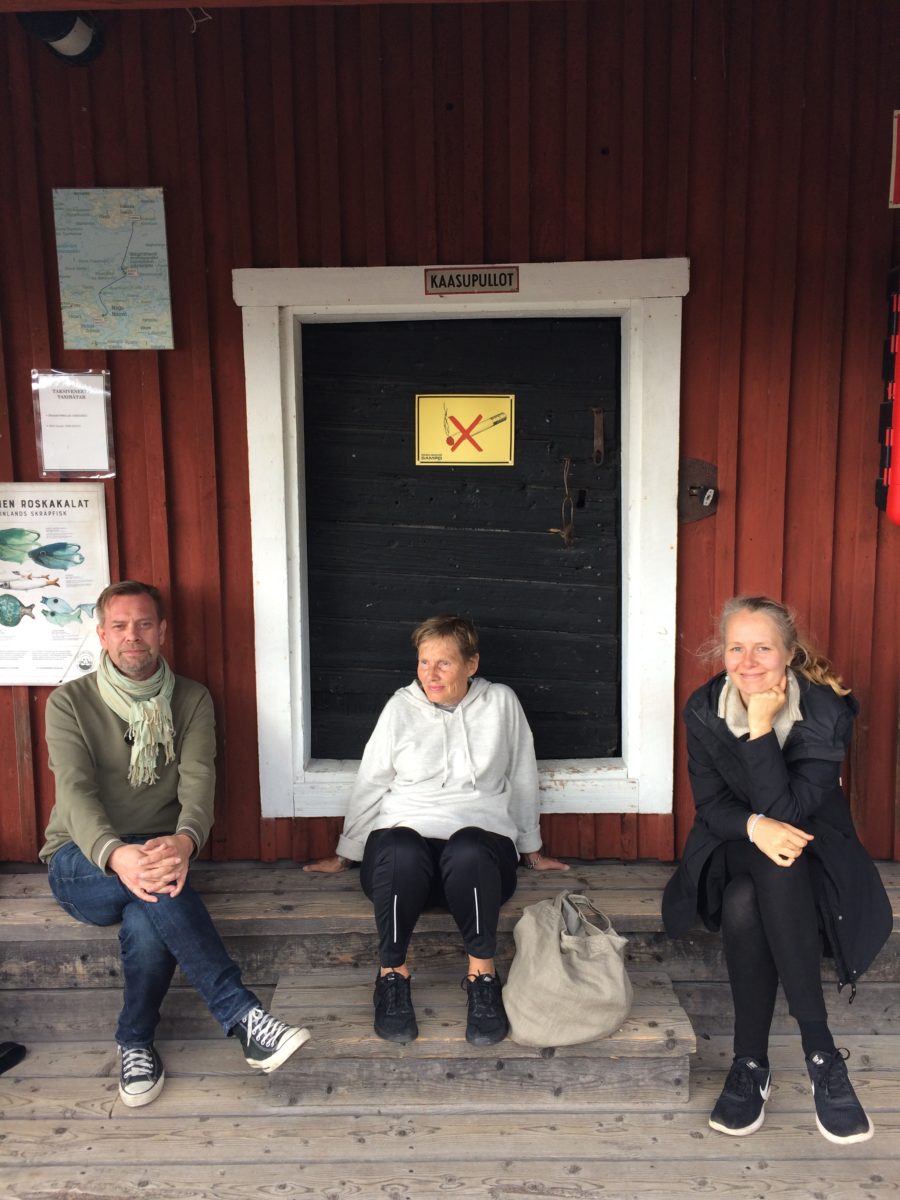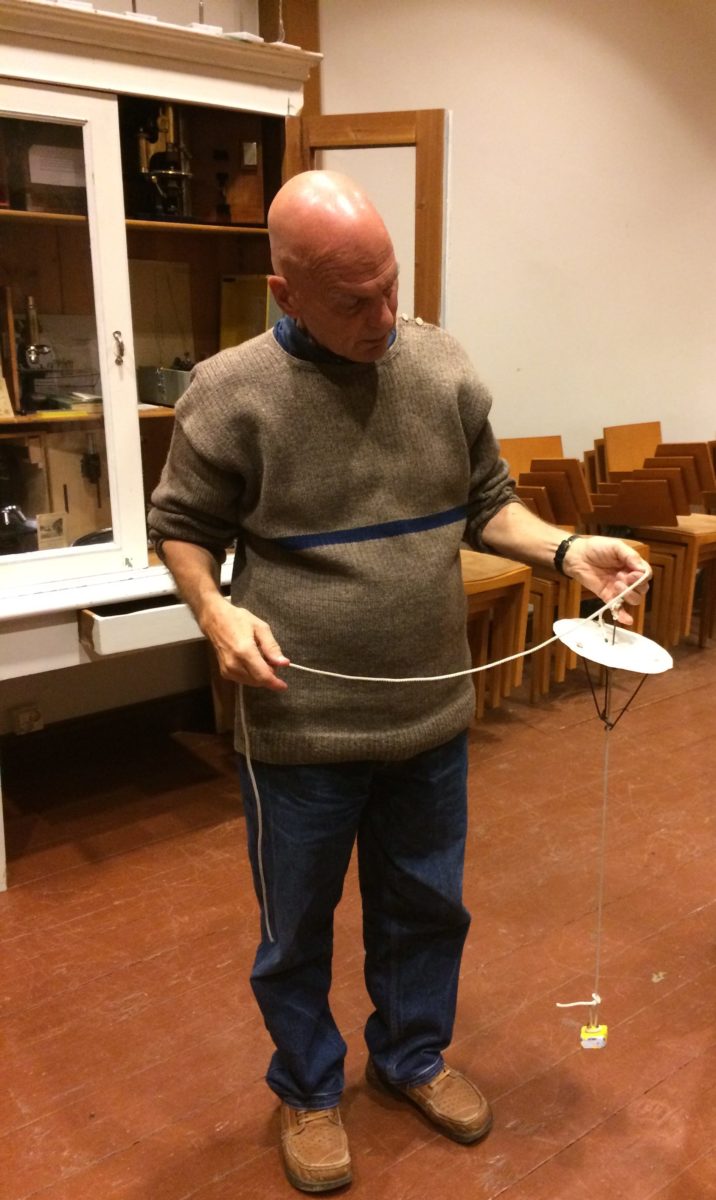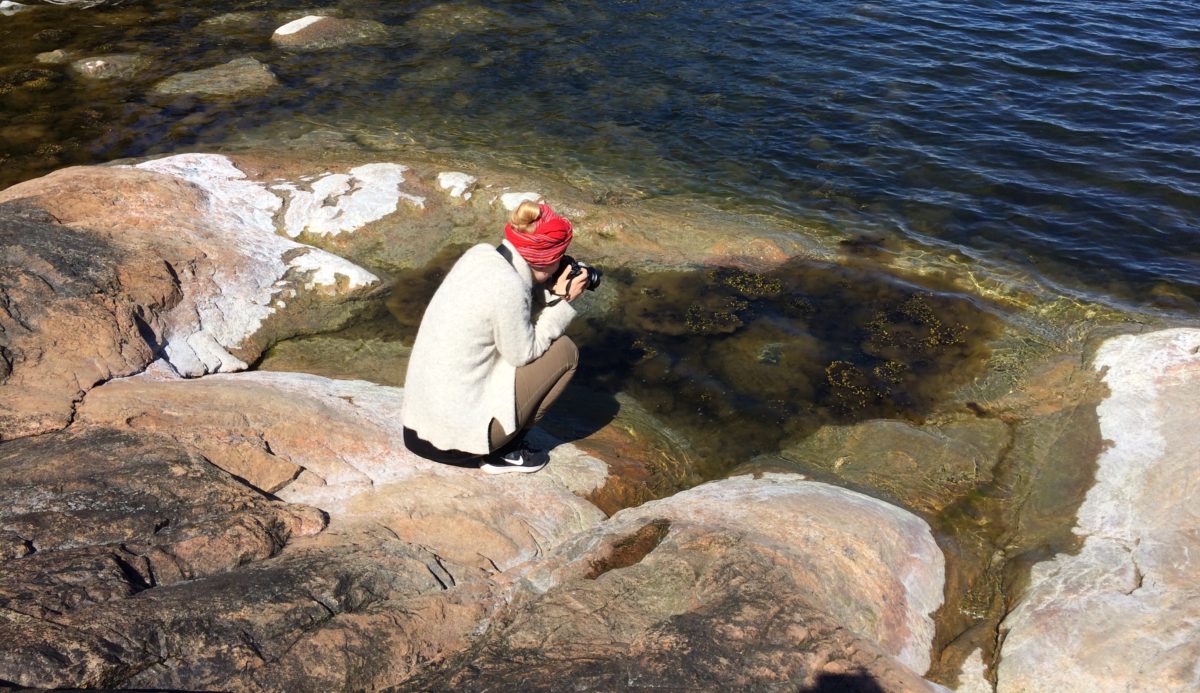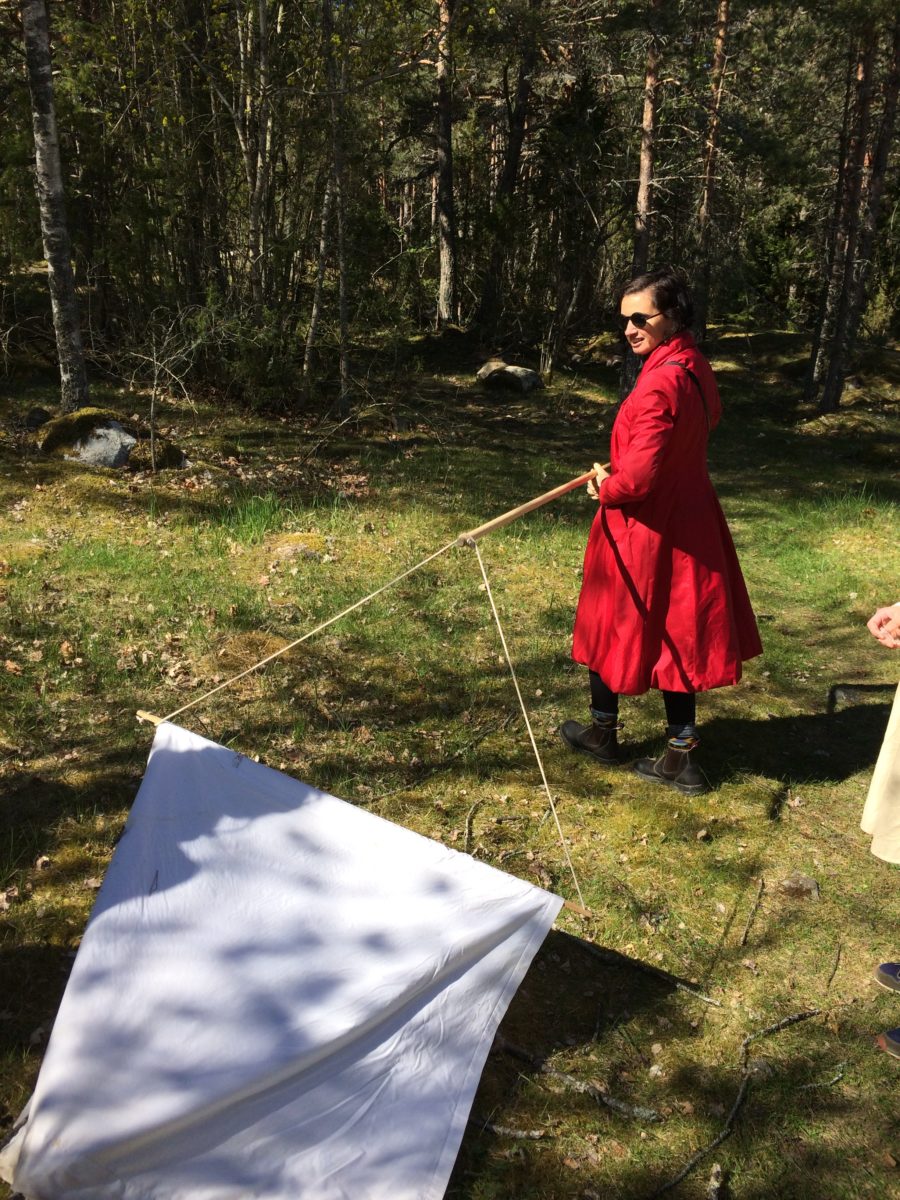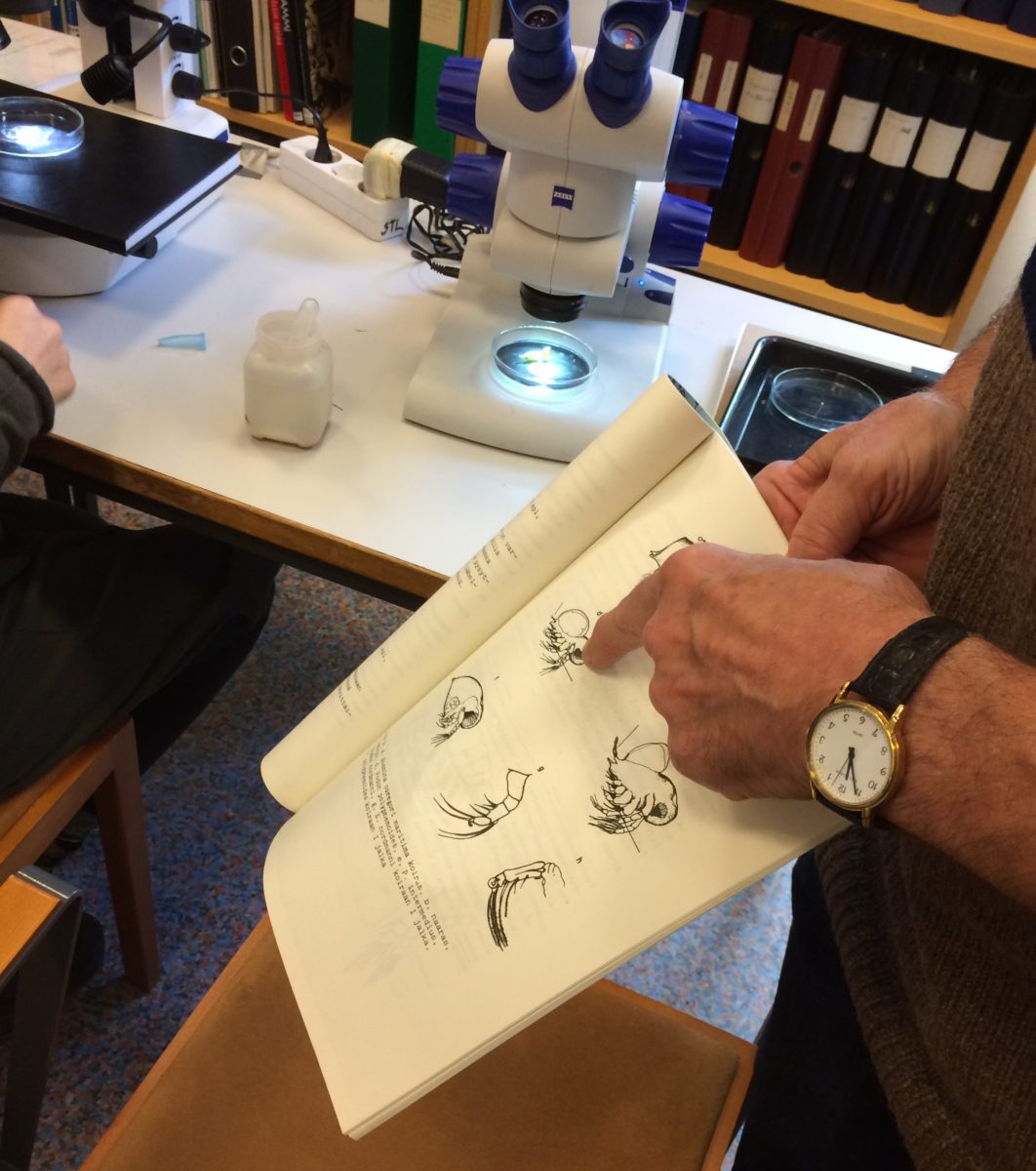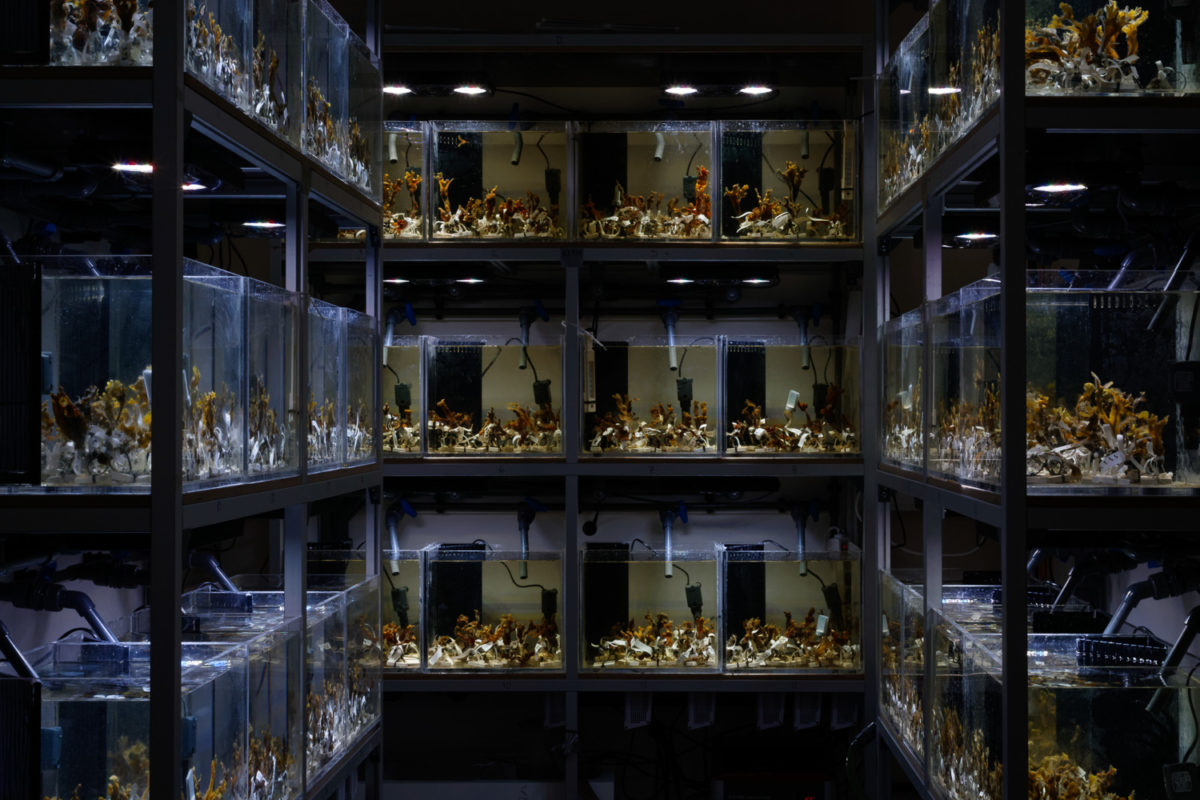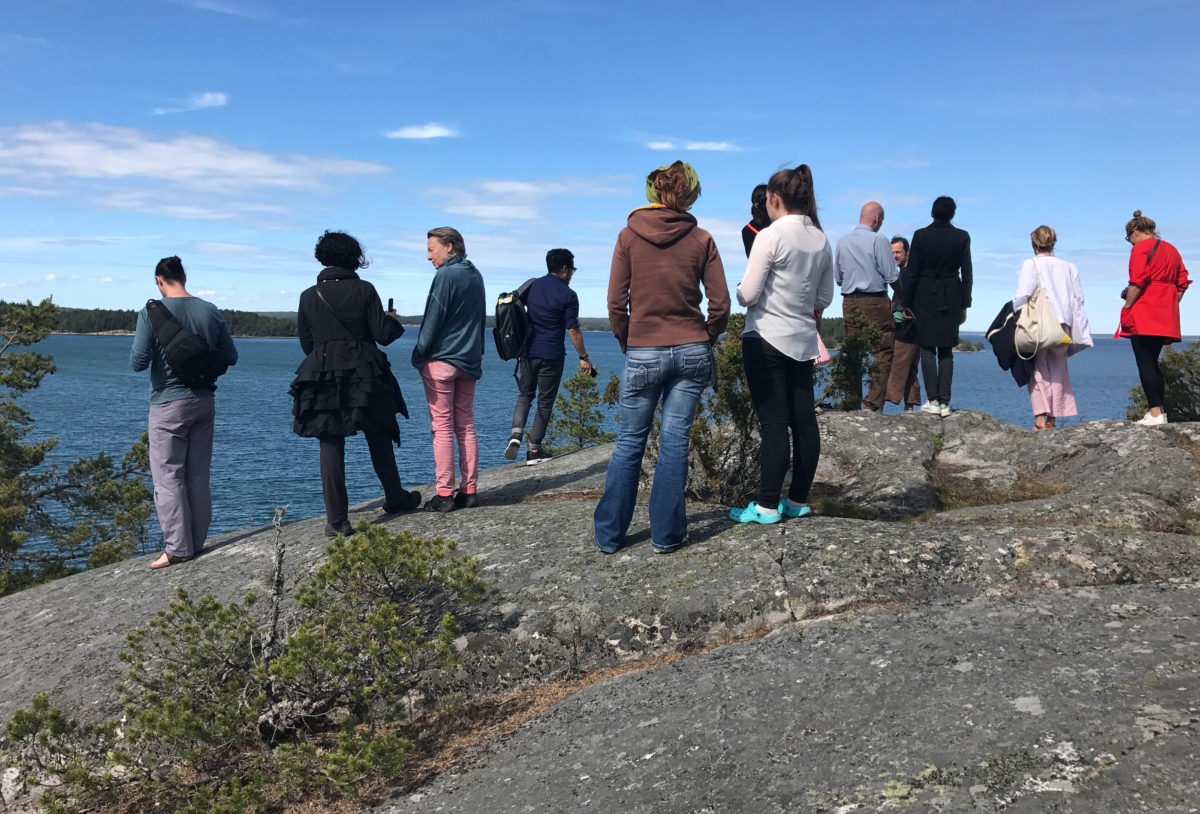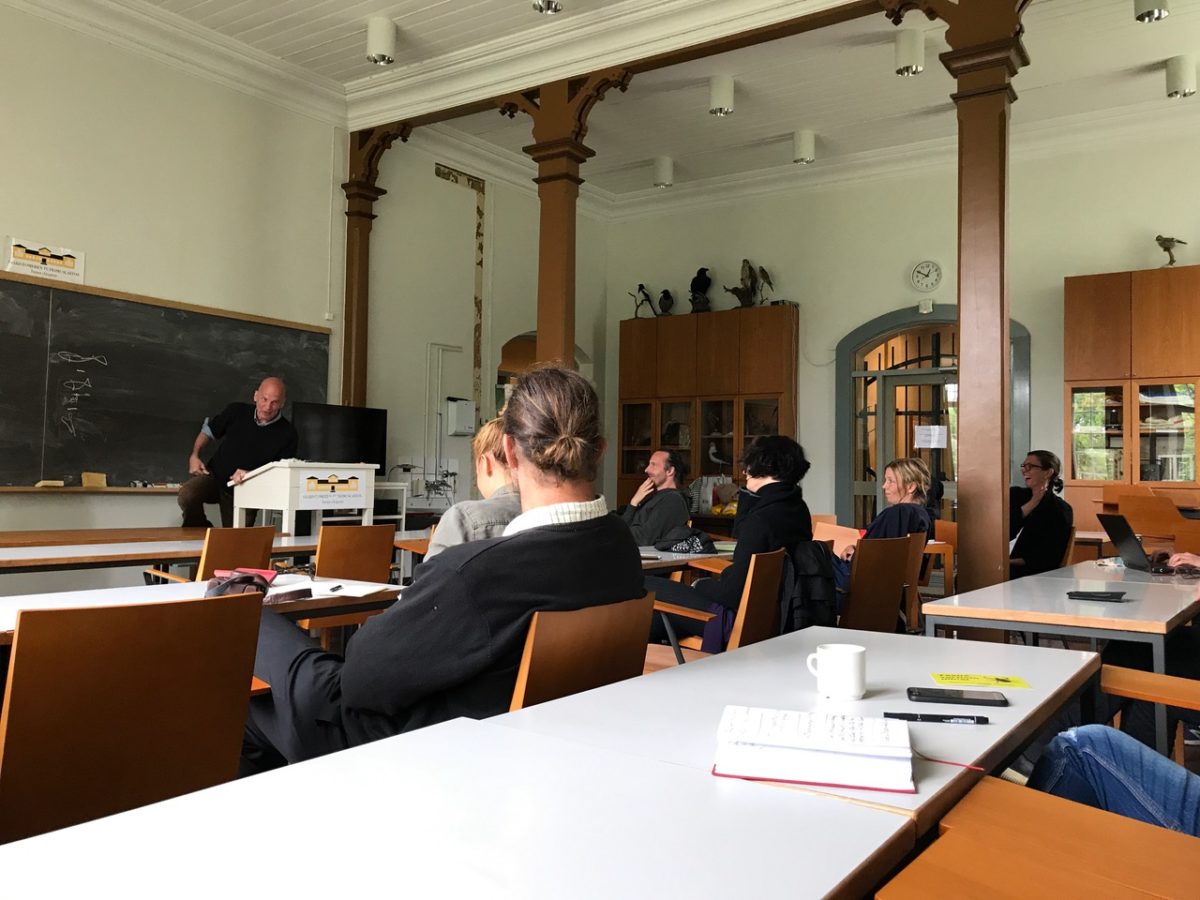Aboagora Research Retreat: De/Colonial Present
25.-27.8.2024
Archipelago Research Institute
Seili
The ABOAGORA Research Retreat: De/Colonial Present invited MA Arts Students and Doctoral Candidates in the arts, humanities, and sciences to reflect together on how the living legacies of colonial histories play a role in the conflicts raging today and, on the other hand, how decolonial practices propose alternative ways out of these battles over territories and words, resources and rights. Facilitated by Taru Elfving (CAA), the retreat brought together a group of nine researchers from different fields ranging from architecture, design and dance to gender studies, human geography, history, environmental and social sciences.
The Retreat was structured around talks, walks and workshops addressing the topic De/Colonial Present from a range of perspectives – ecological, societal, empirical, speculative, institutional – in their many interconnections. It aimed to nurture an interdisciplinary address of imperialism and colonialism in their myriad forms, while recognizing a range of anti- and decolonial methods in the study of present-day crises: geopolitical and culture wars, humanitarian and environmental emergencies, clashes between worldviews and values, and struggles for justice.
The Retreat set out to bring a plurality of research questions, perspectives and methodologies together in a shared enquiry on site: How to approach and understand a particular place in the present, guided by attention to colonial mindsets and practices that are implicit and explicit in a densely layered socio-ecological site such as the island of Seili and the surrounding Archipelago Sea? How the focus on de/coloniality fosters awareness of both the irreducible specificities of a place and its global or planetary interdependencies? How to acknowledge not only urgent crises and revolutionary events, but also attend to structural slow violence and gradual societal transformations? How can research work towards socially and ecologically sustainable futures in the de/colonial present?
These questions call for a range of critical and creative practices that study, trace, and imagine the many pasts and potential futures that meet in the yet undetermined present. The aim of the Retreat was thus to also bridge the gaps between disciplinary boundaries in the sciences and the arts. The changing ecology of the Archipelago Sea and the island of Seili with its complex history of institutions of care and control – from the leprosy colony and mental asylum for women to the current environmental research, nature conservation and tourism – choreographed the discussions.
ABOAGORA – Between Arts and Sciences is an annual symposium that brings together academia, the arts and society. It is a joint effort by the University of Turku, Åbo Akademi University, Arts Academy of Turku University of Applied Sciences, Åbo Akademi University Foundation and Turku University Foundation. The 2024 main event Mars, the Bringer of War was held August 28–30 in Turku at the Sibelius Museum. The retreat participants discussed their work in a joint panel session at the symposium.
